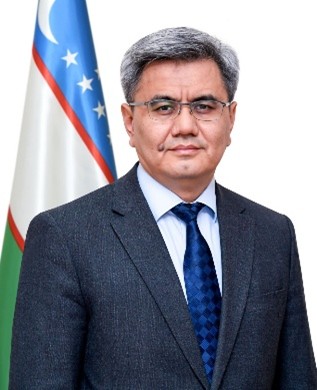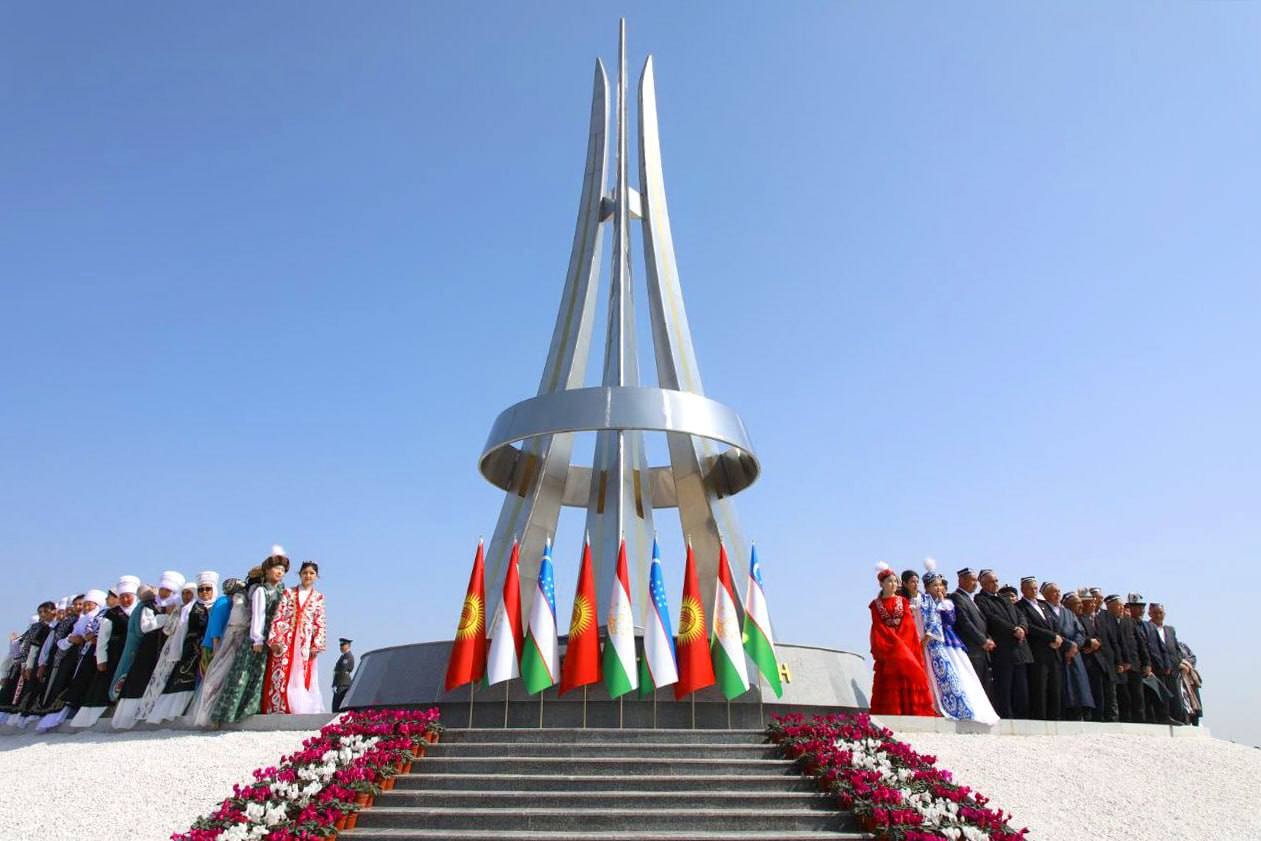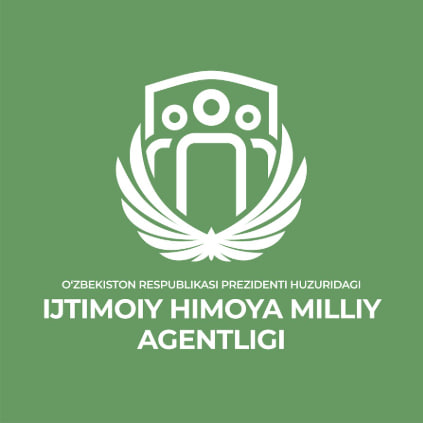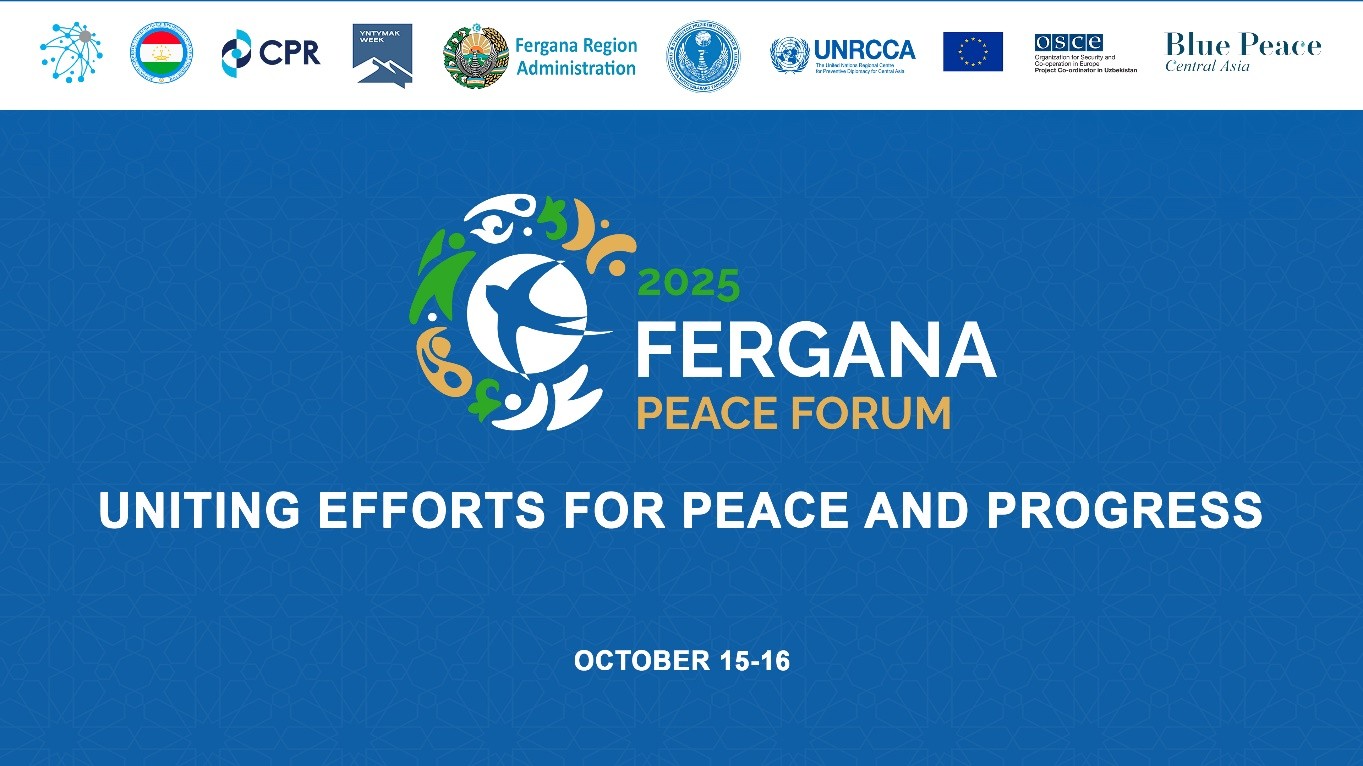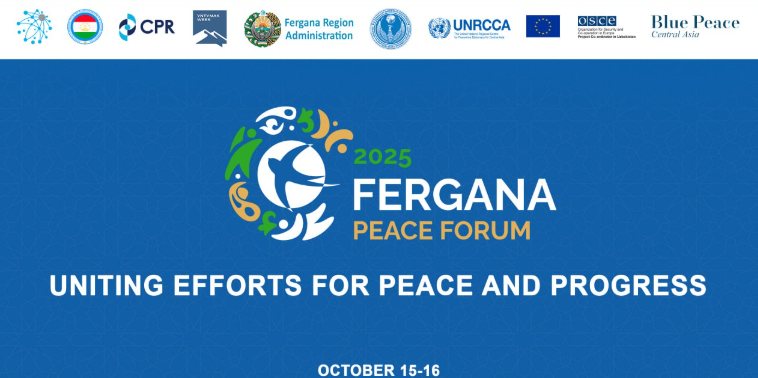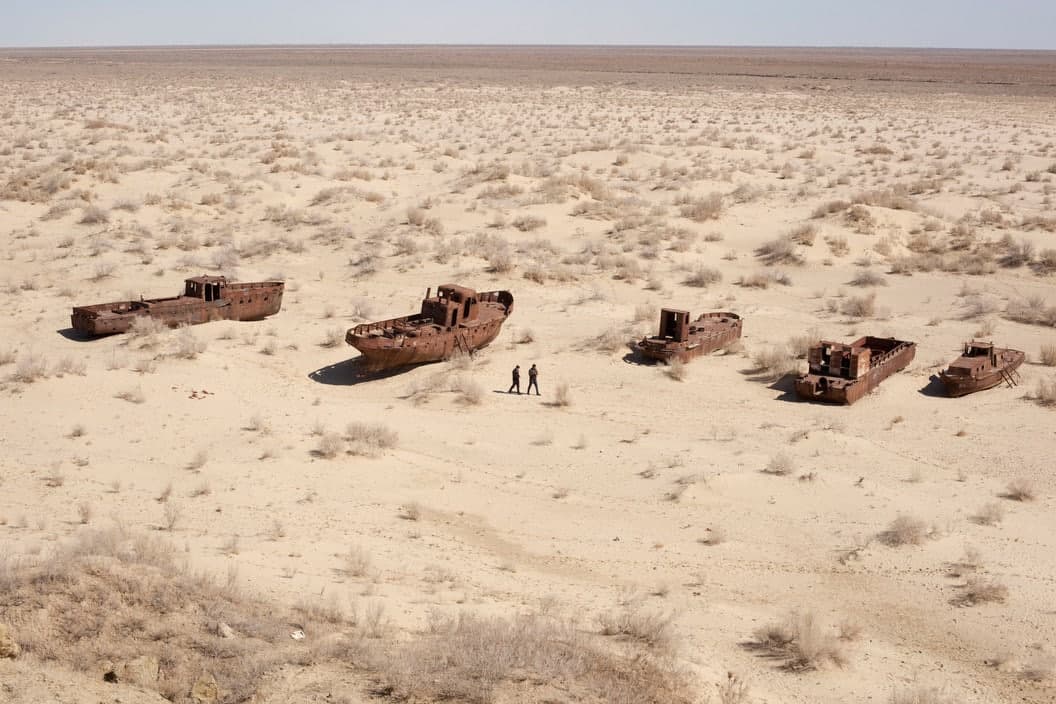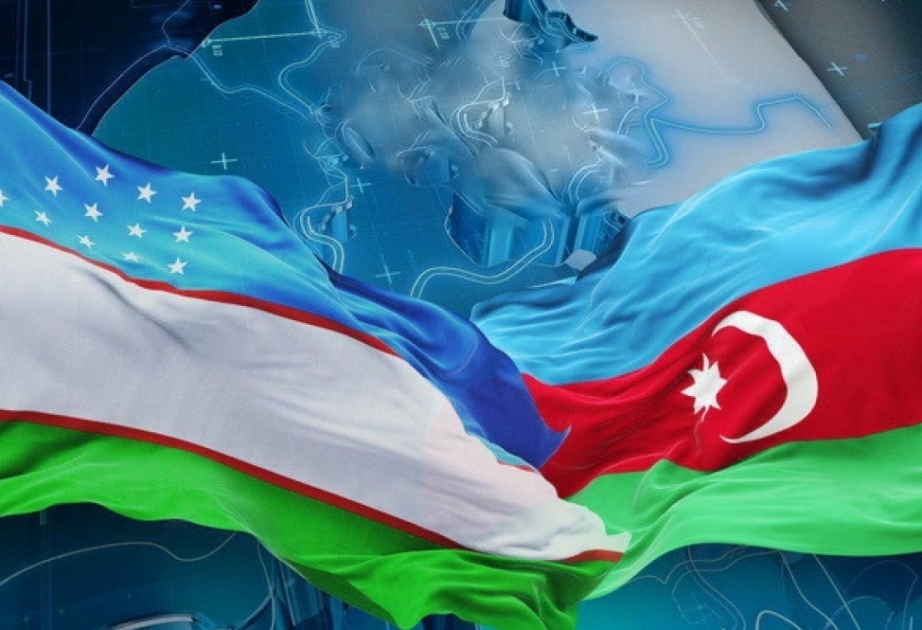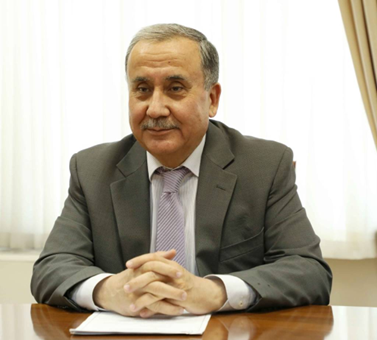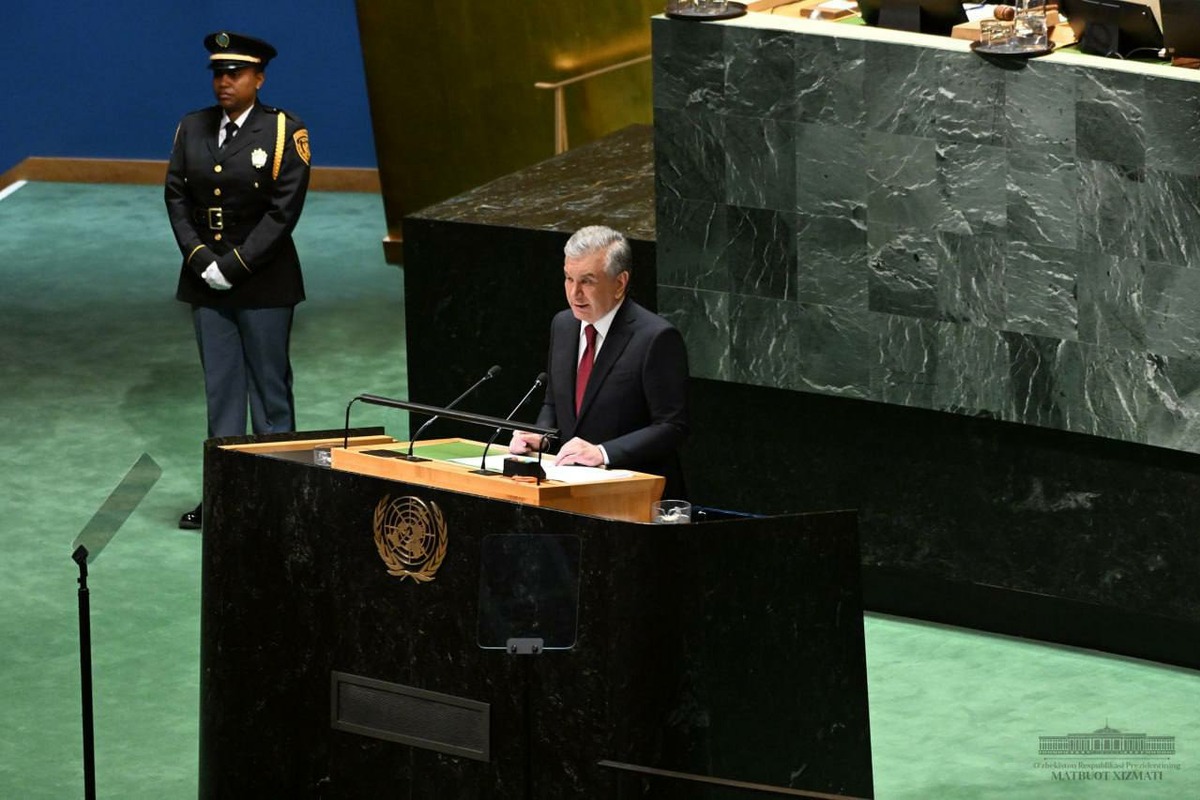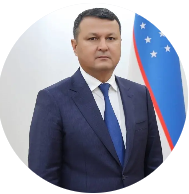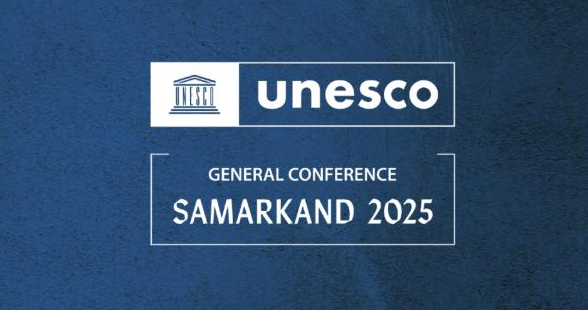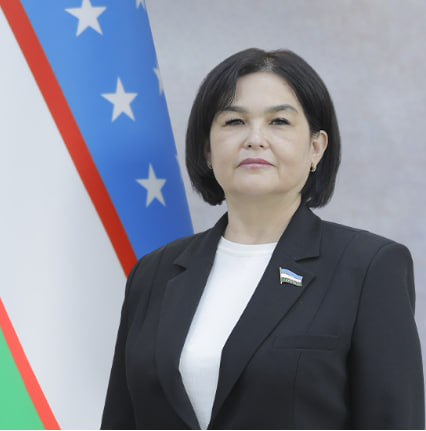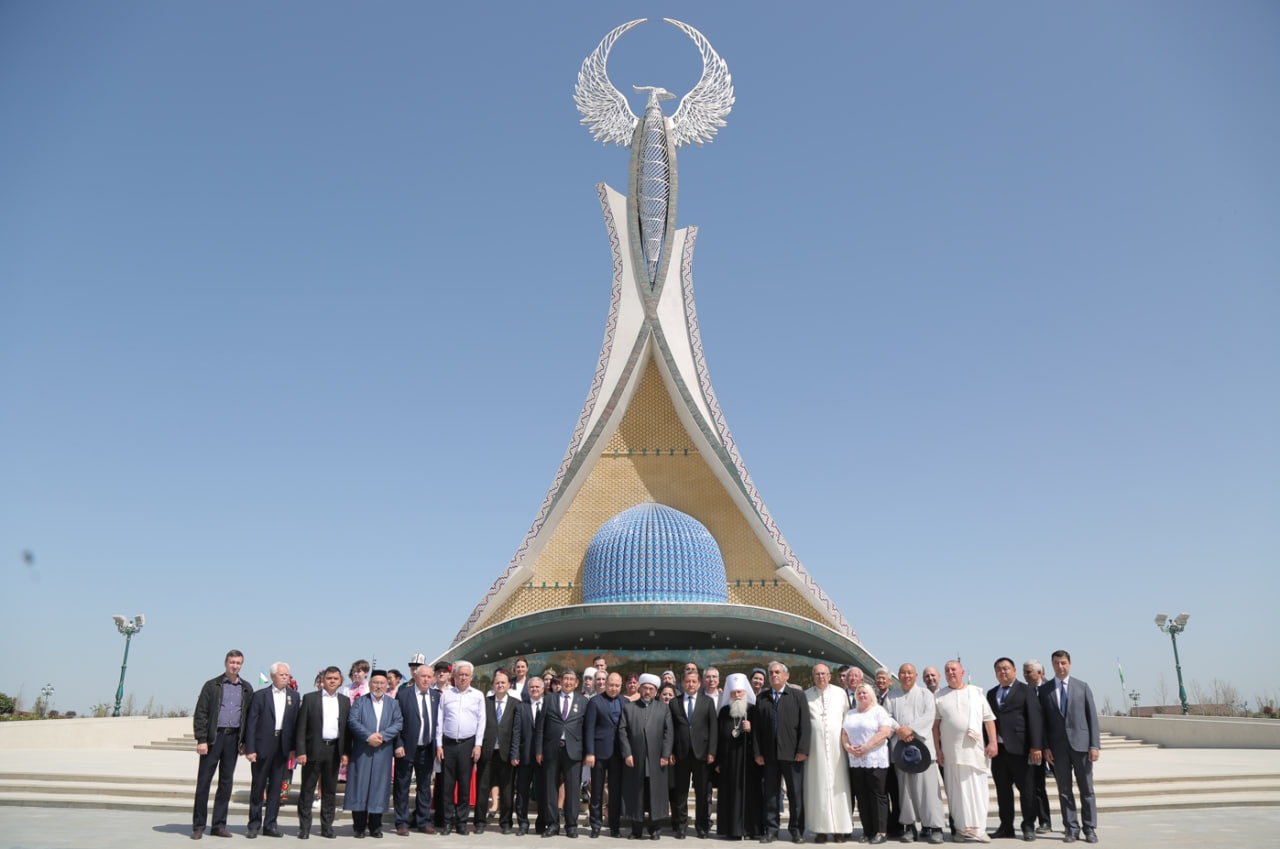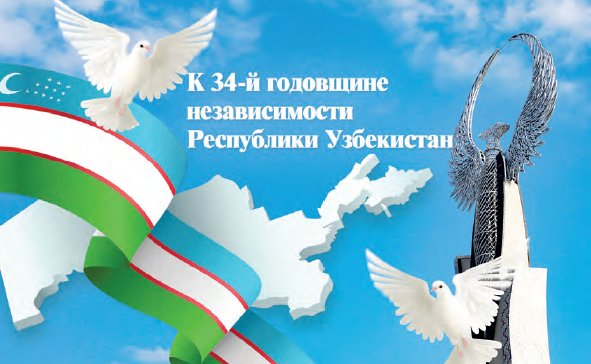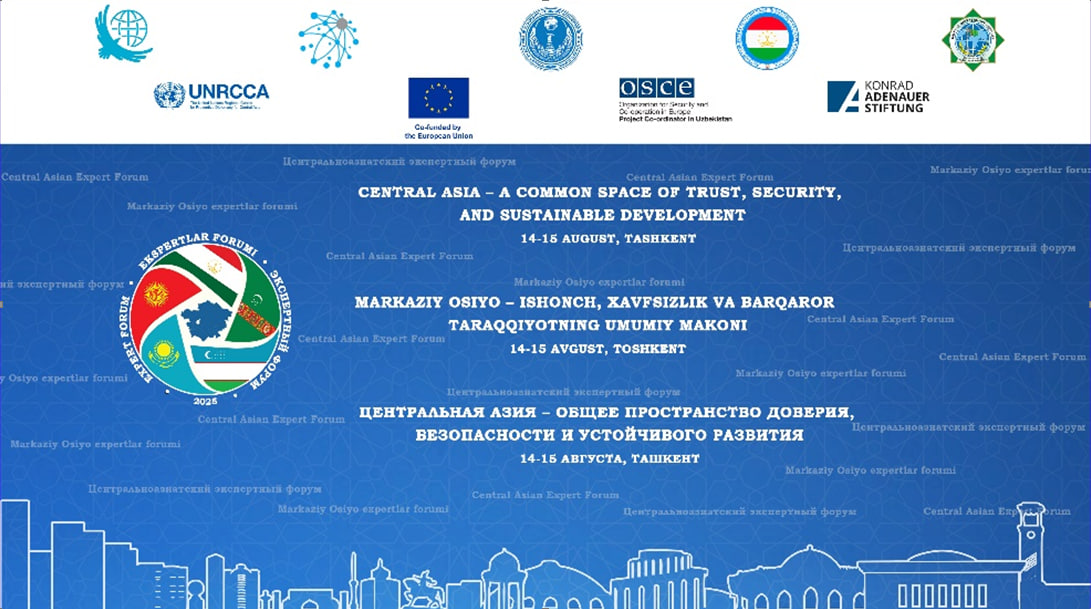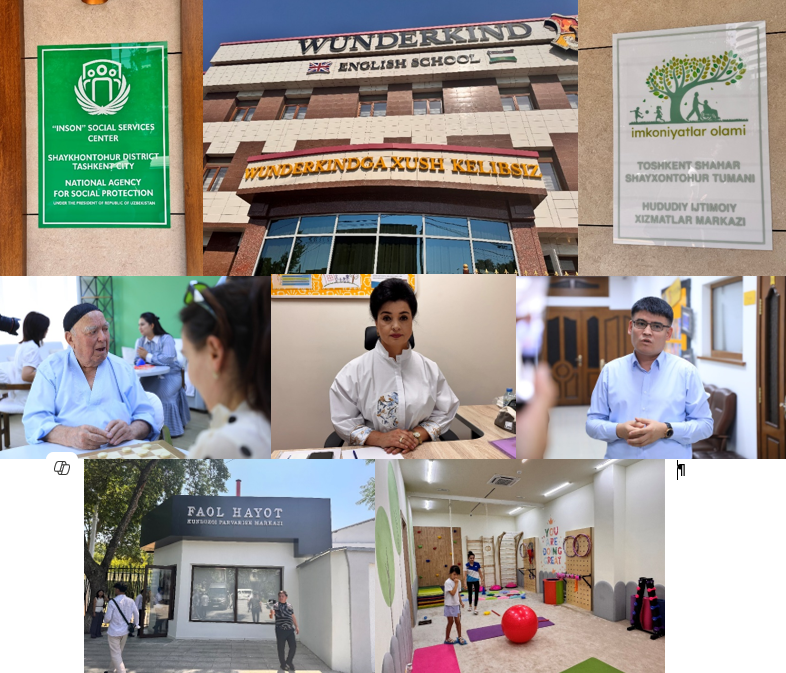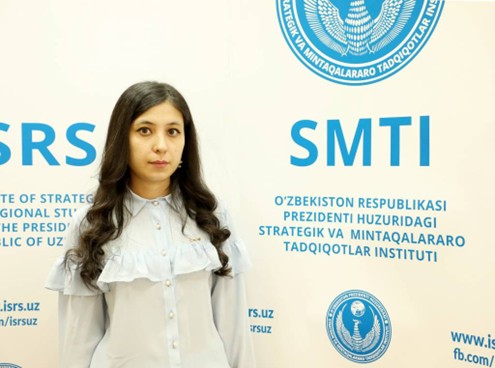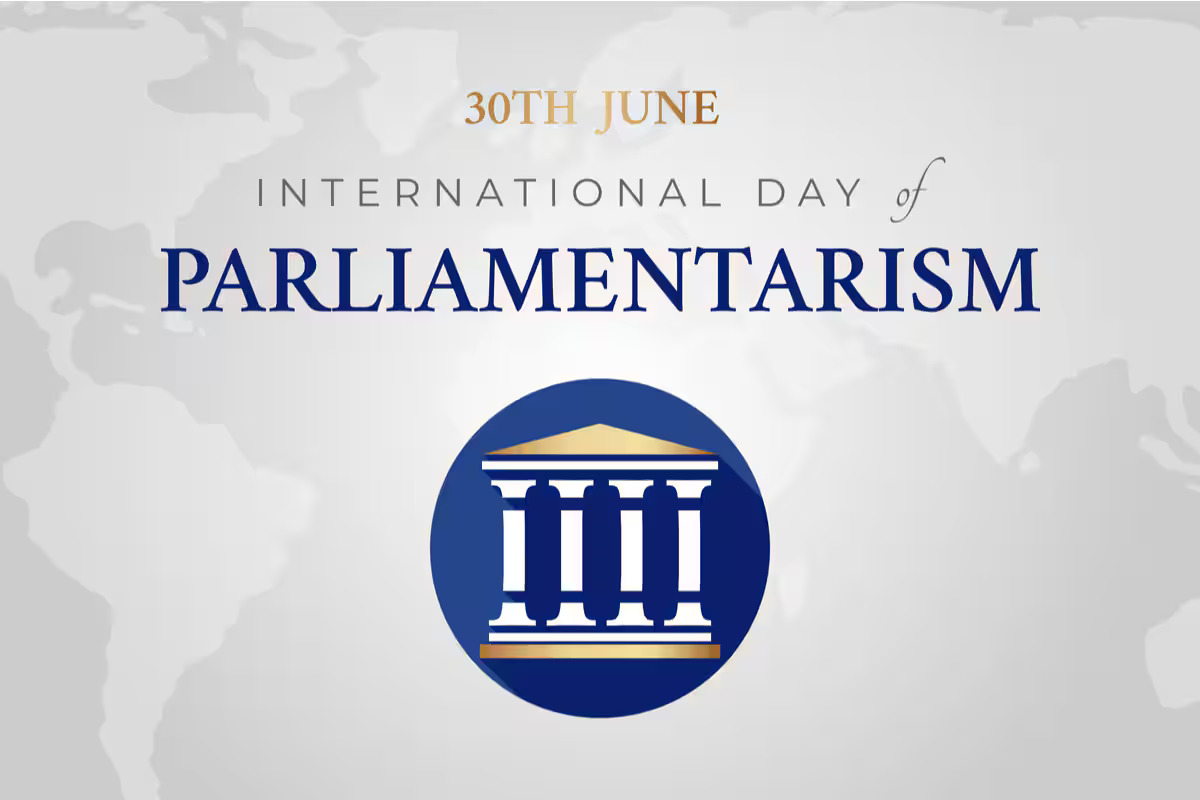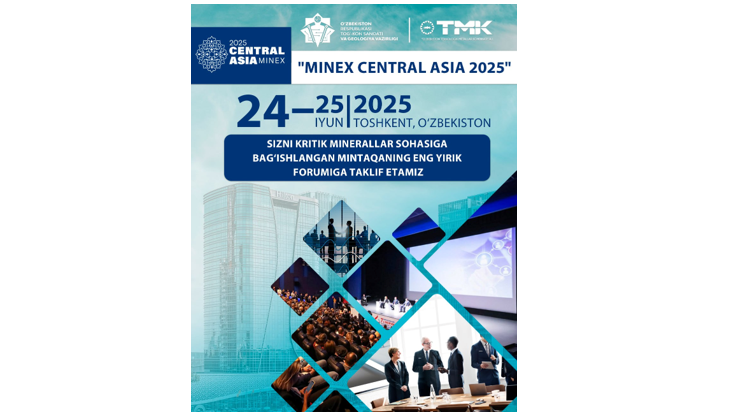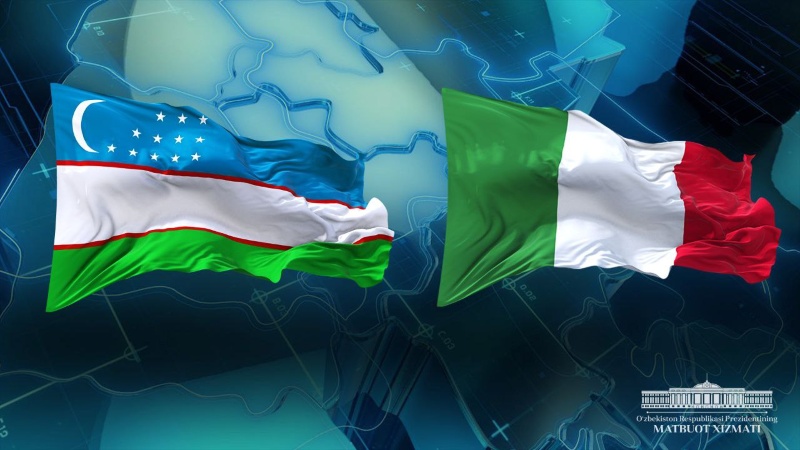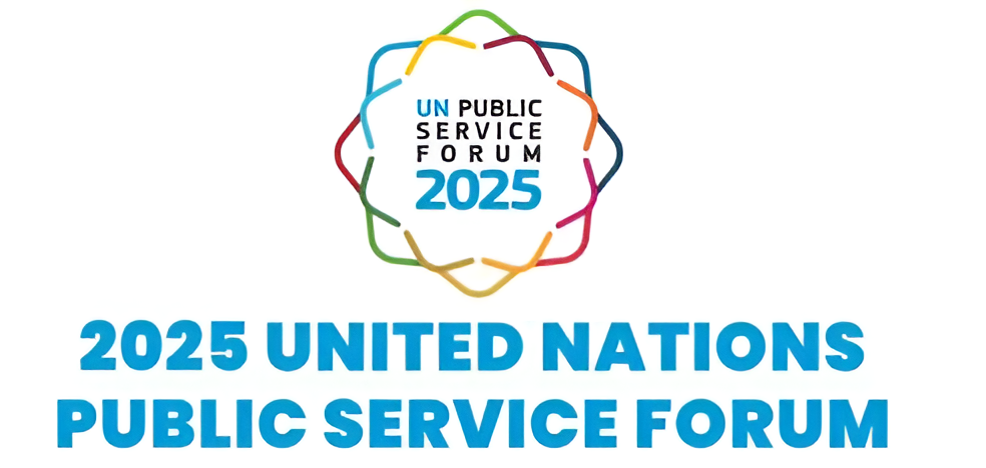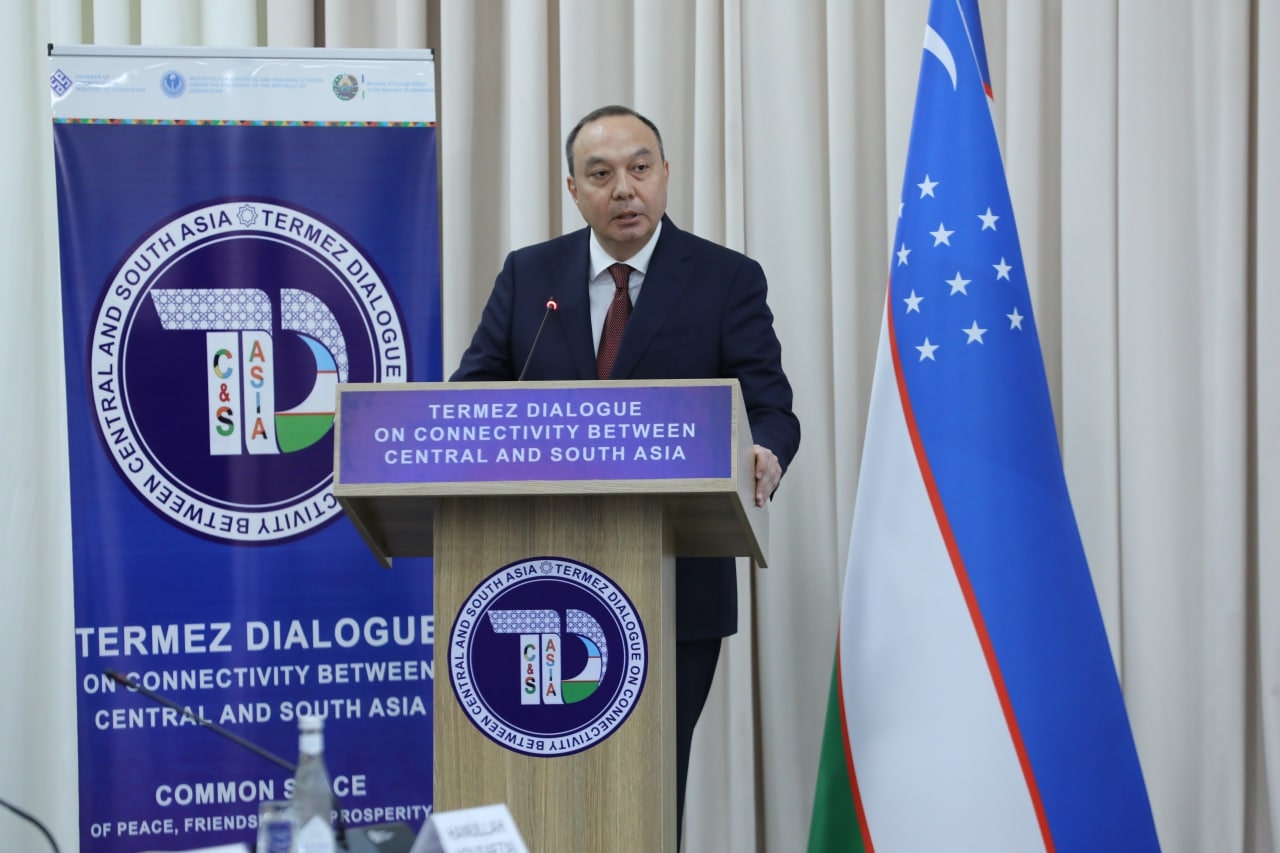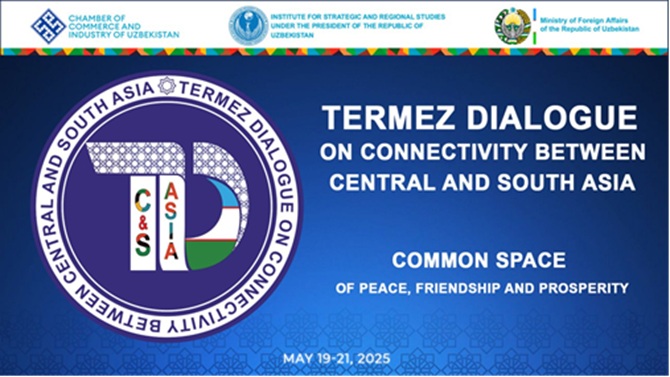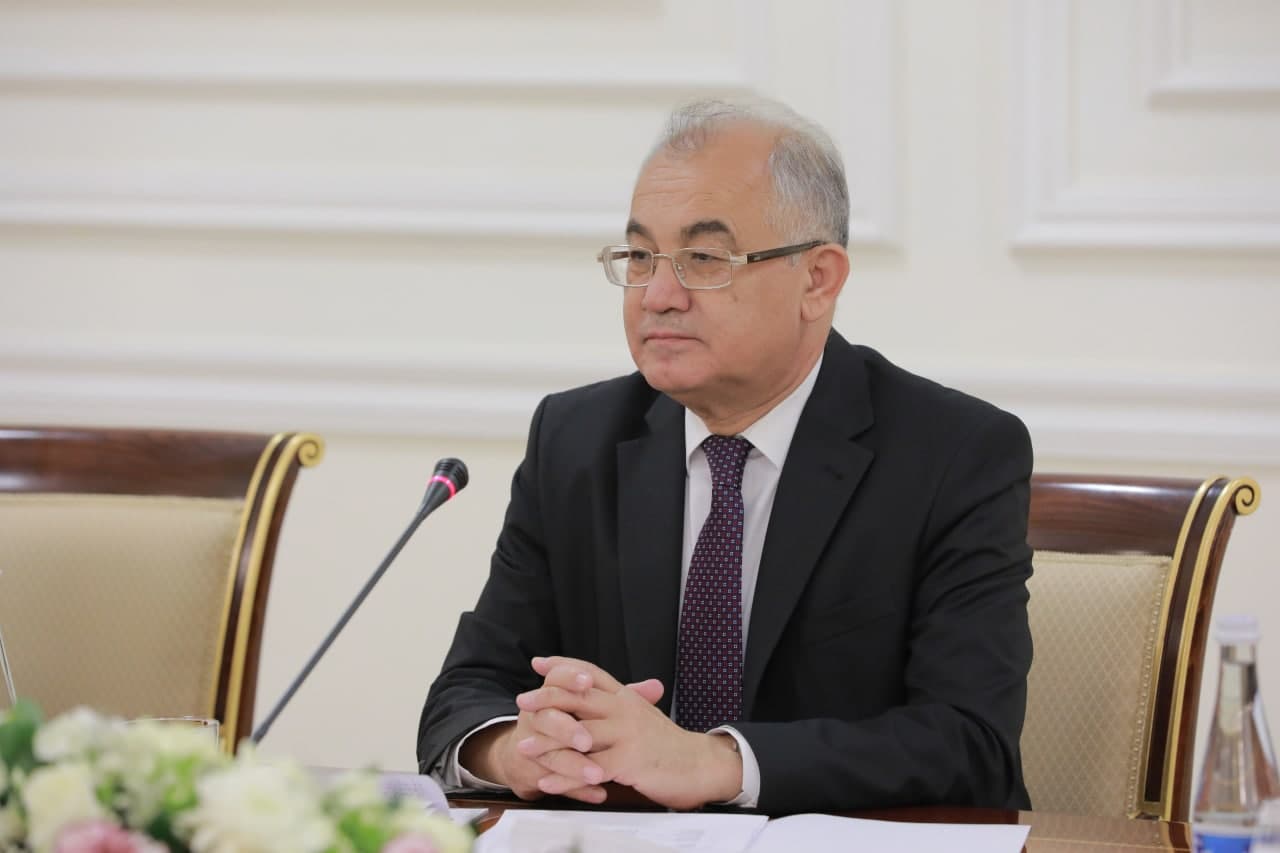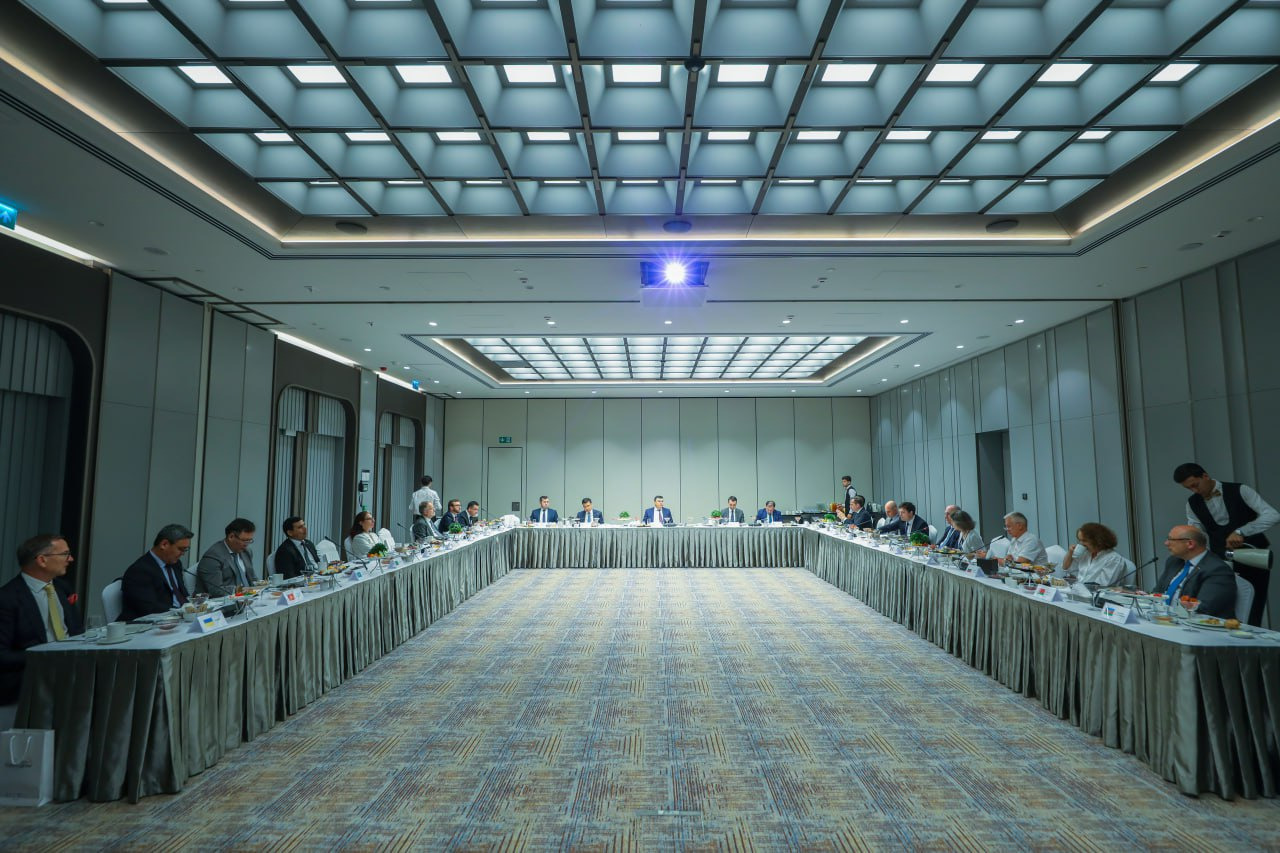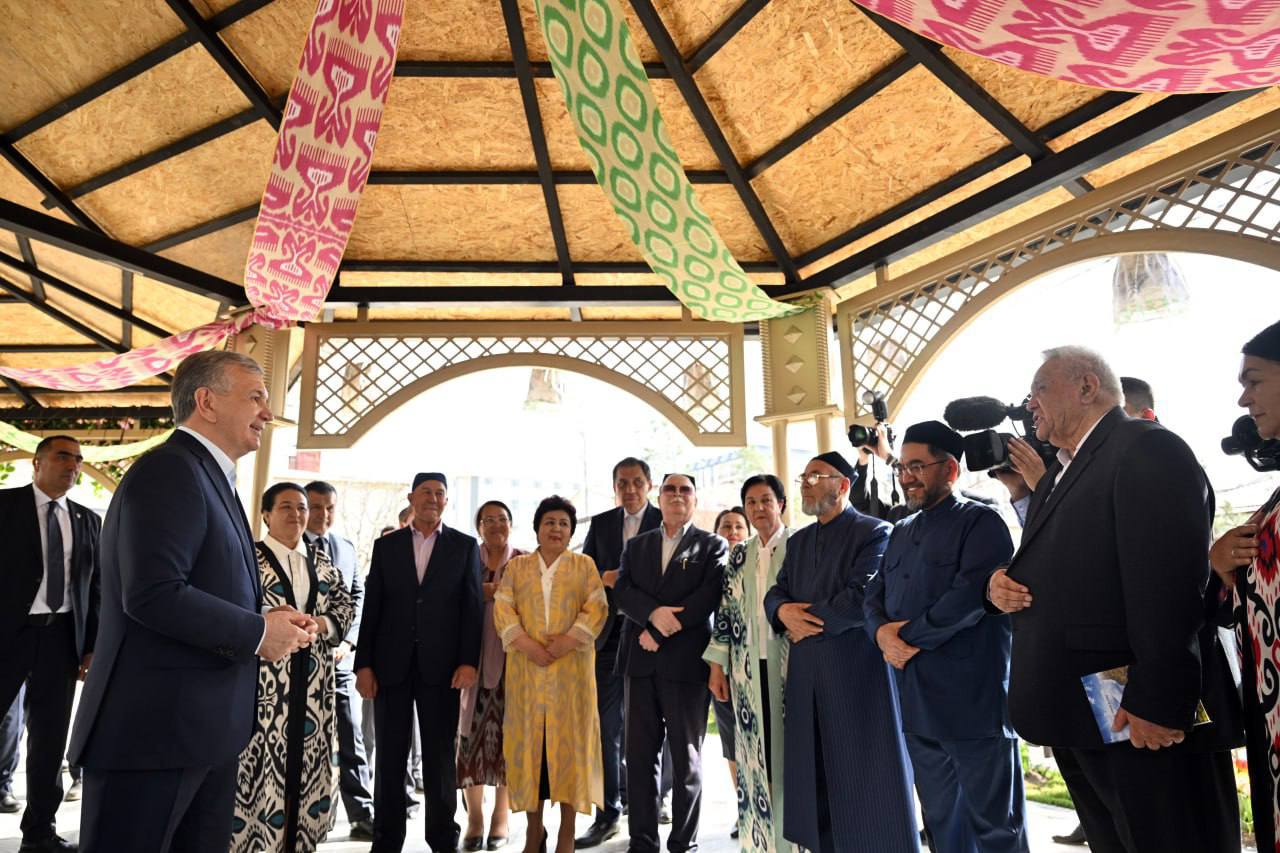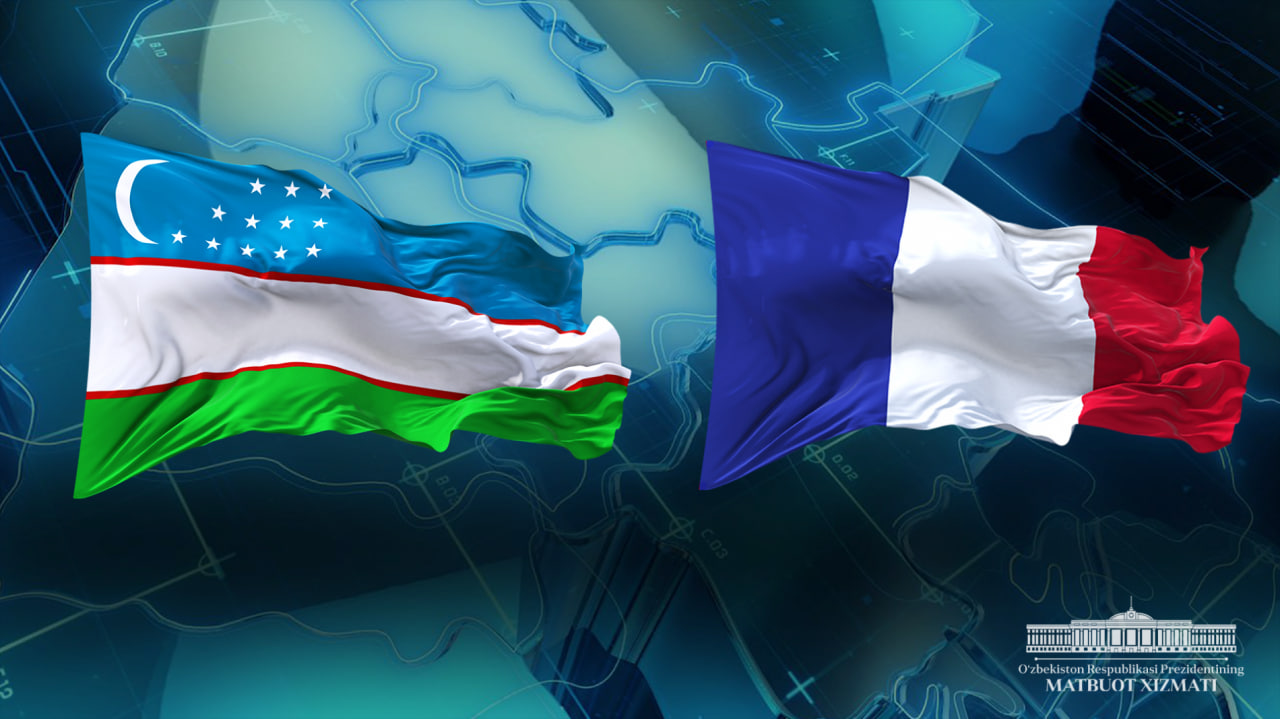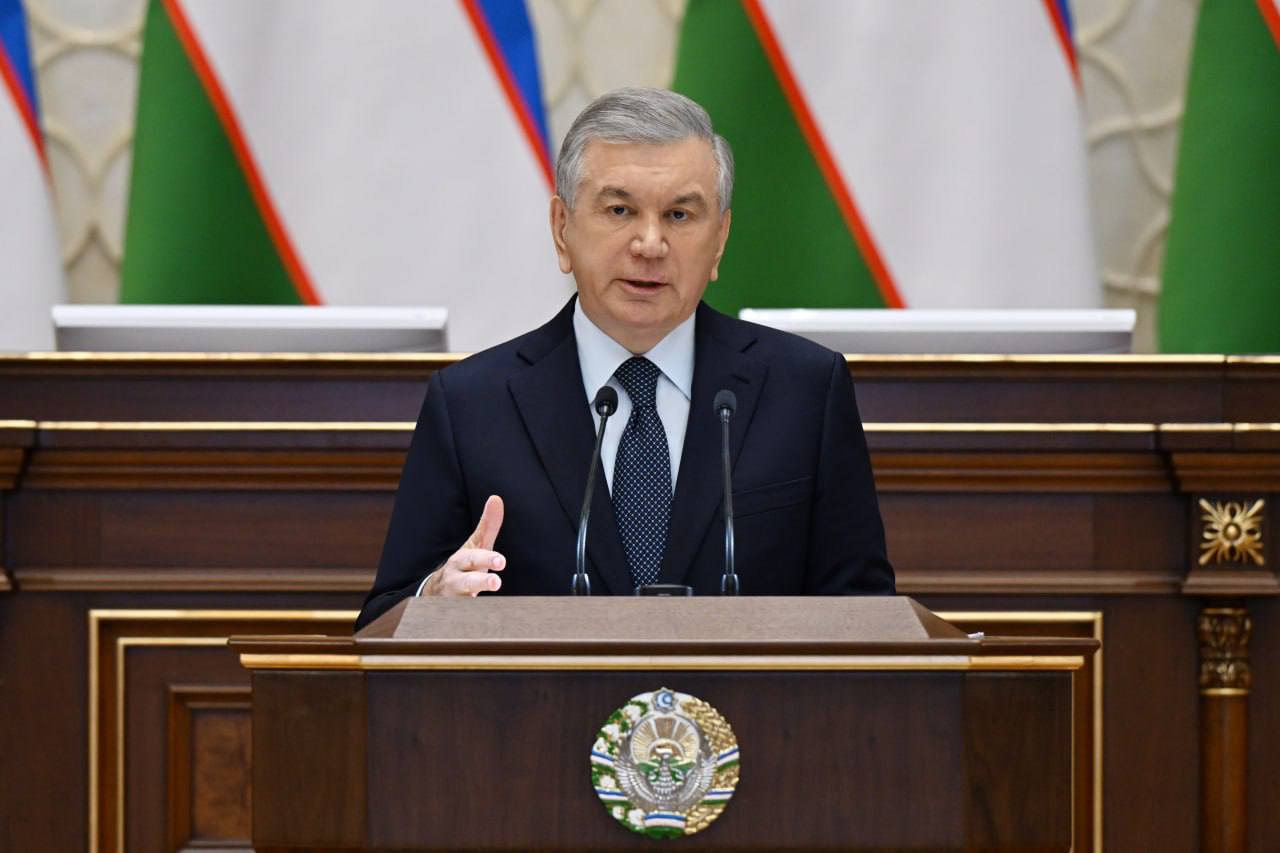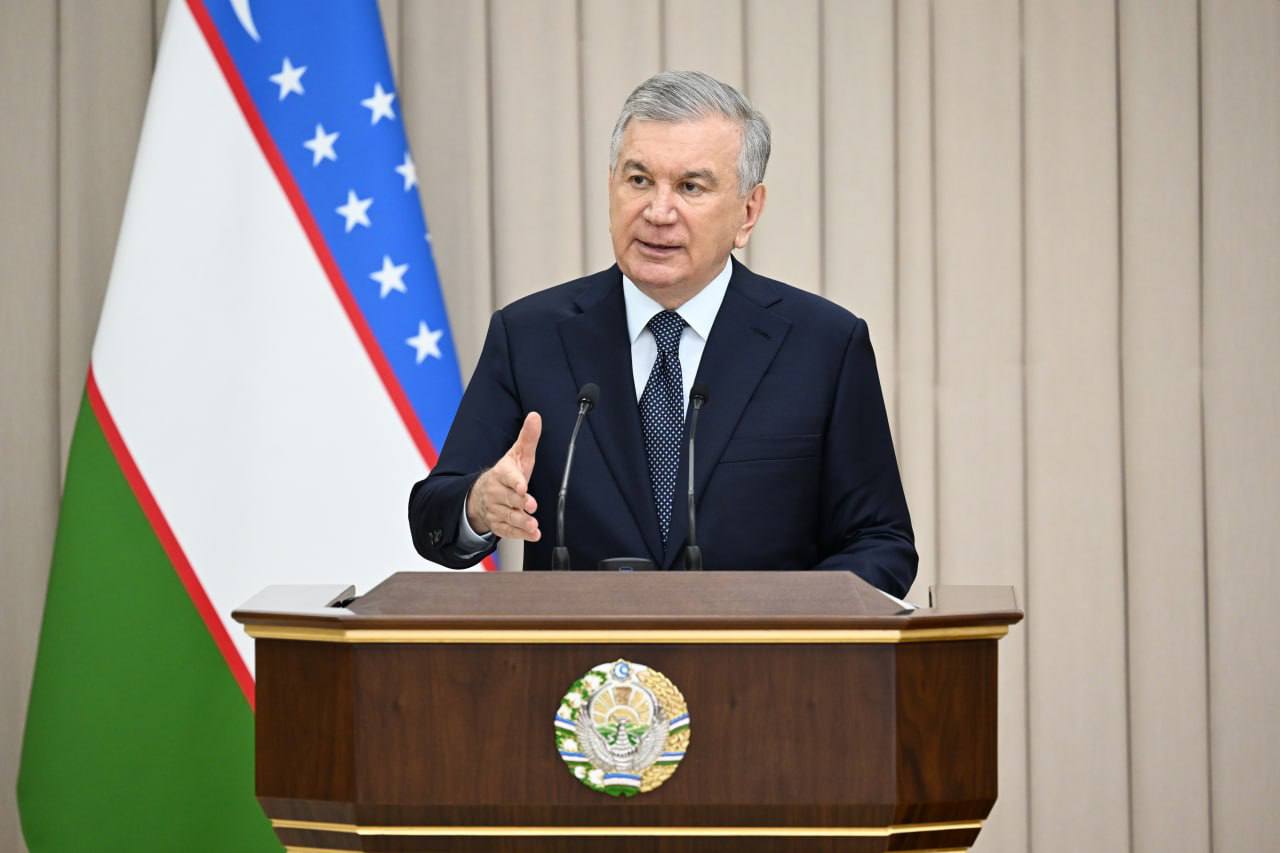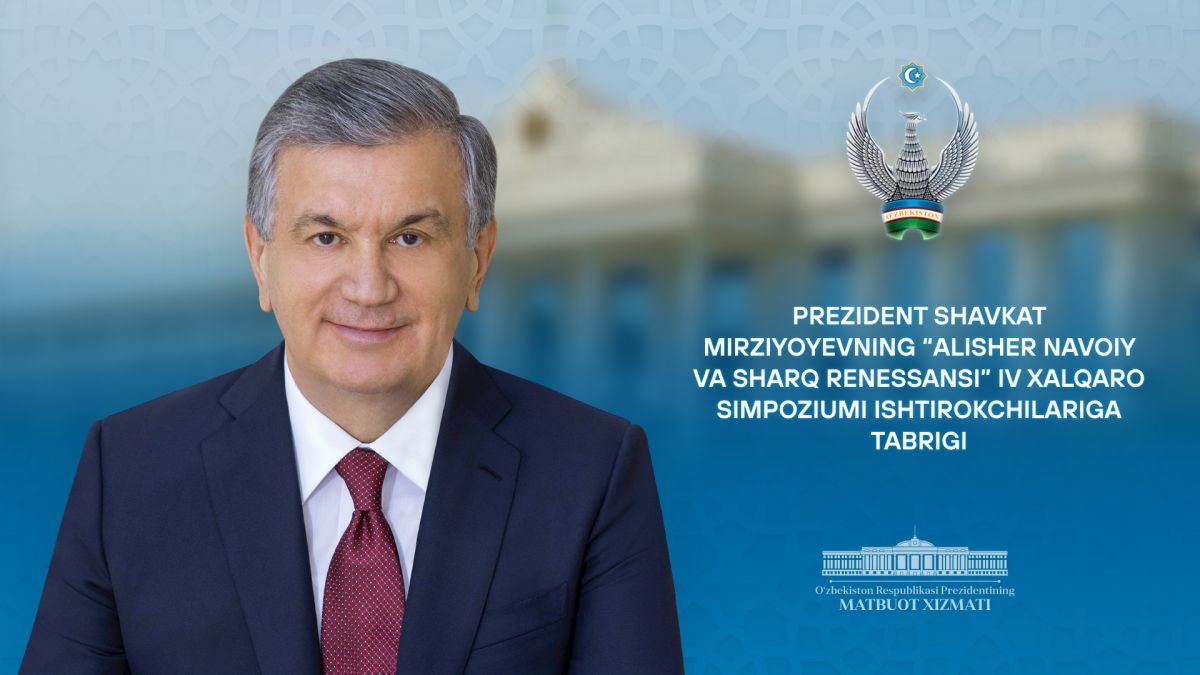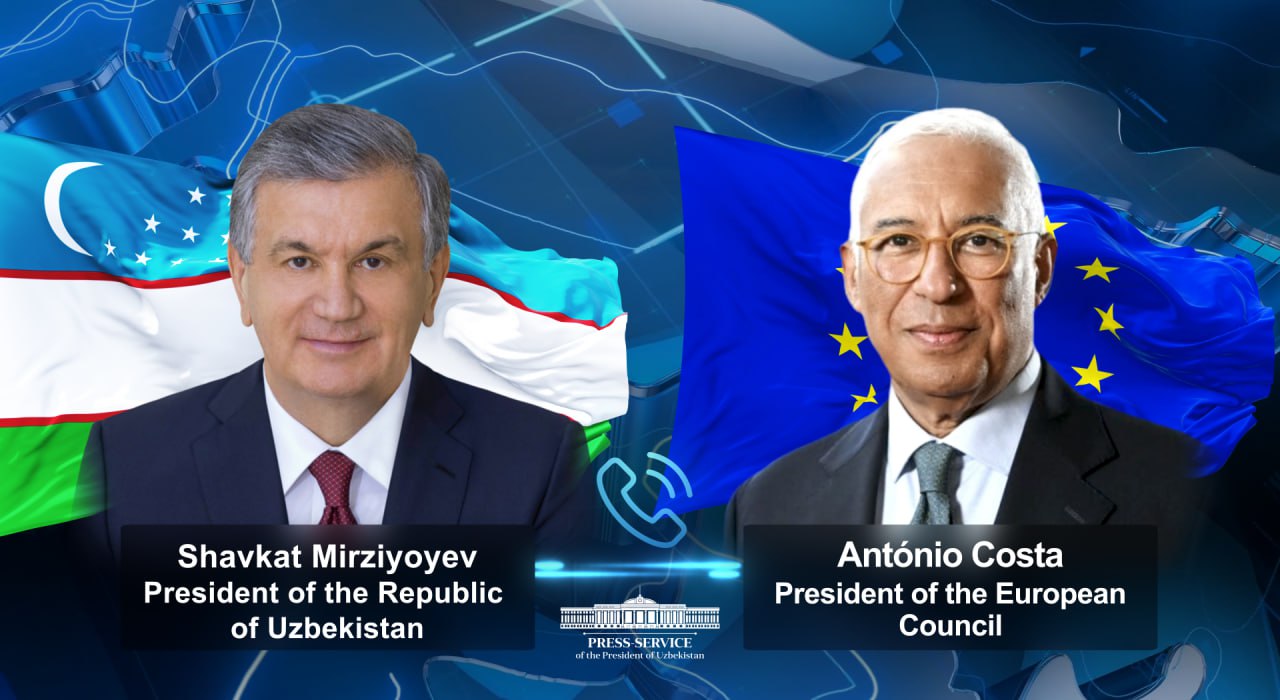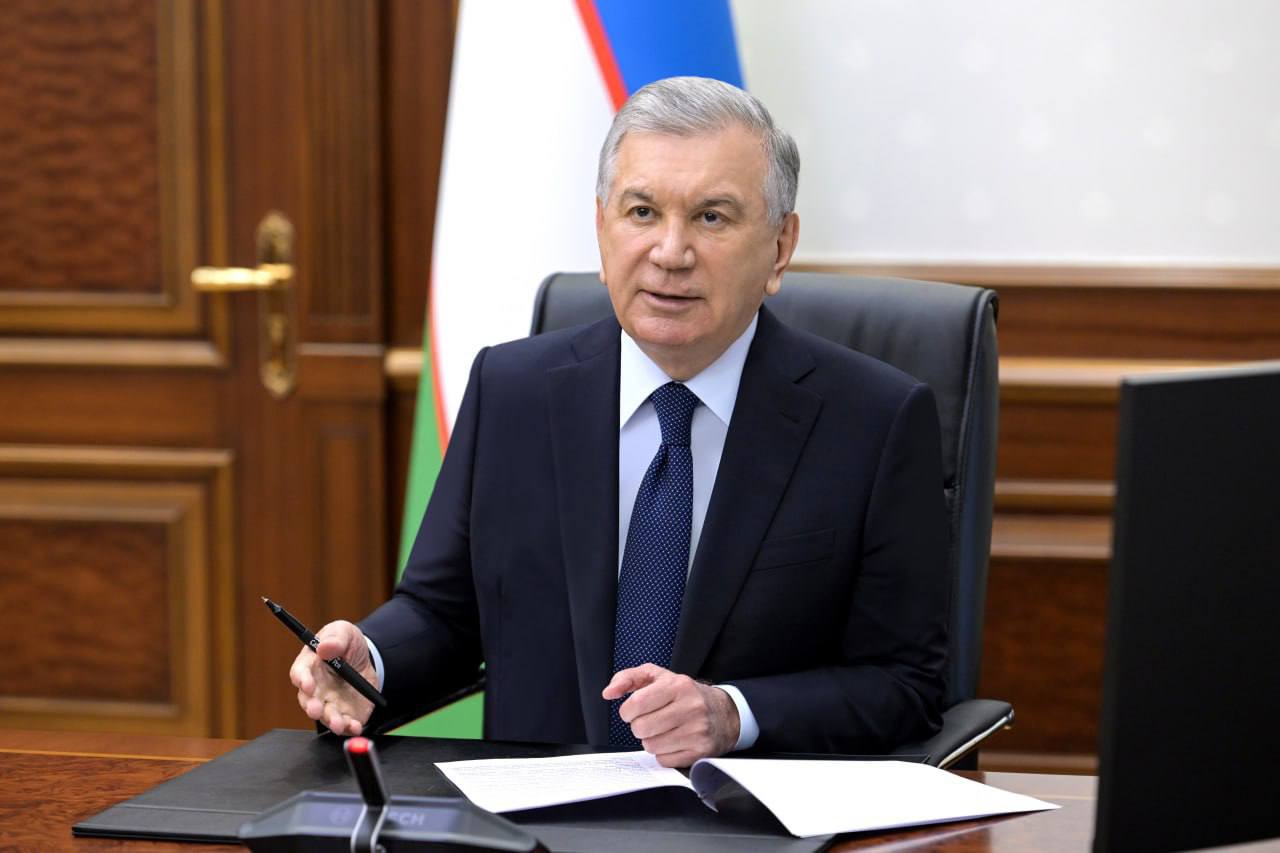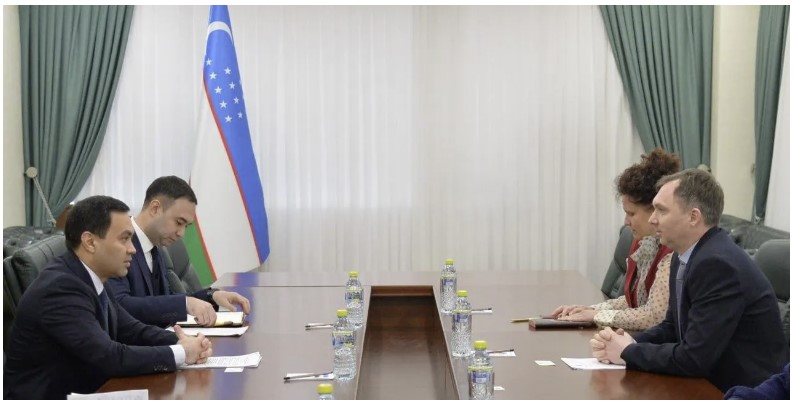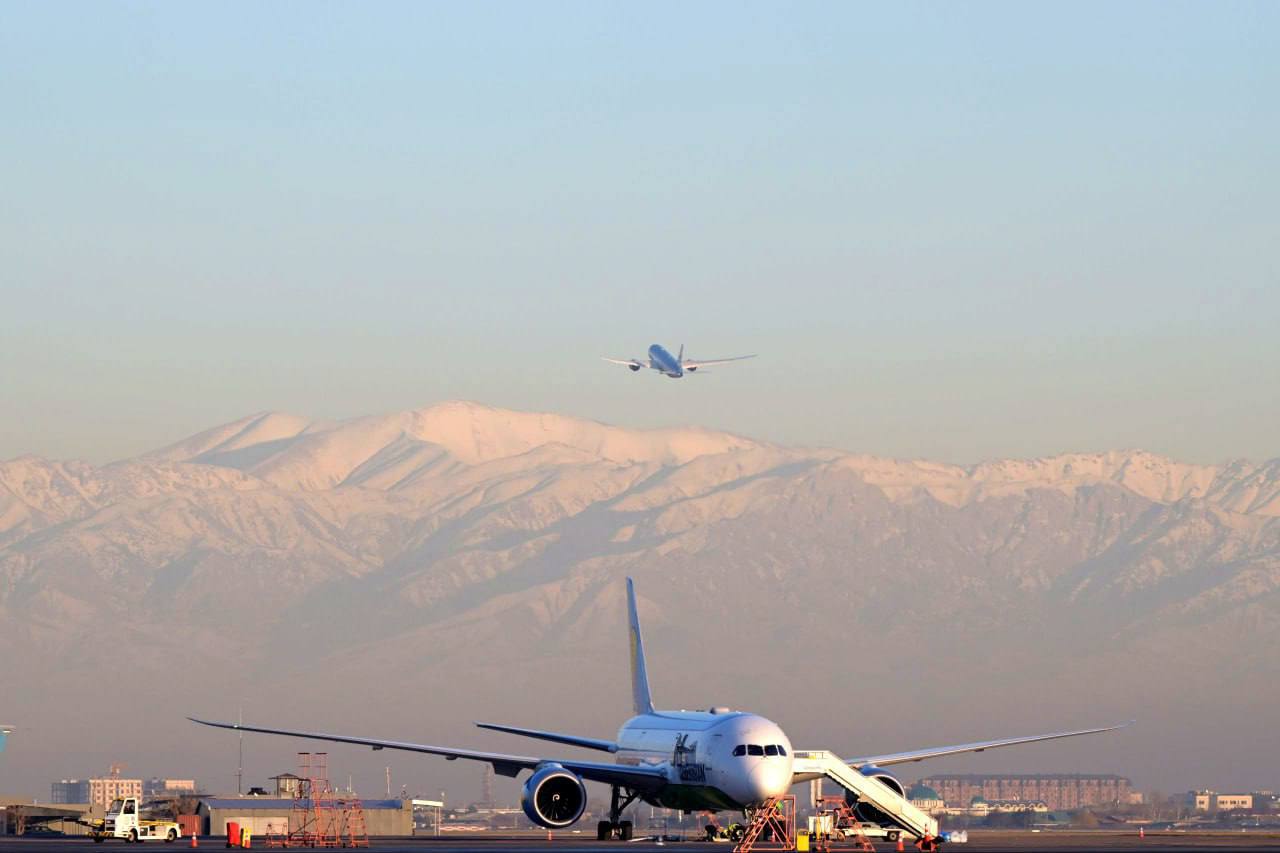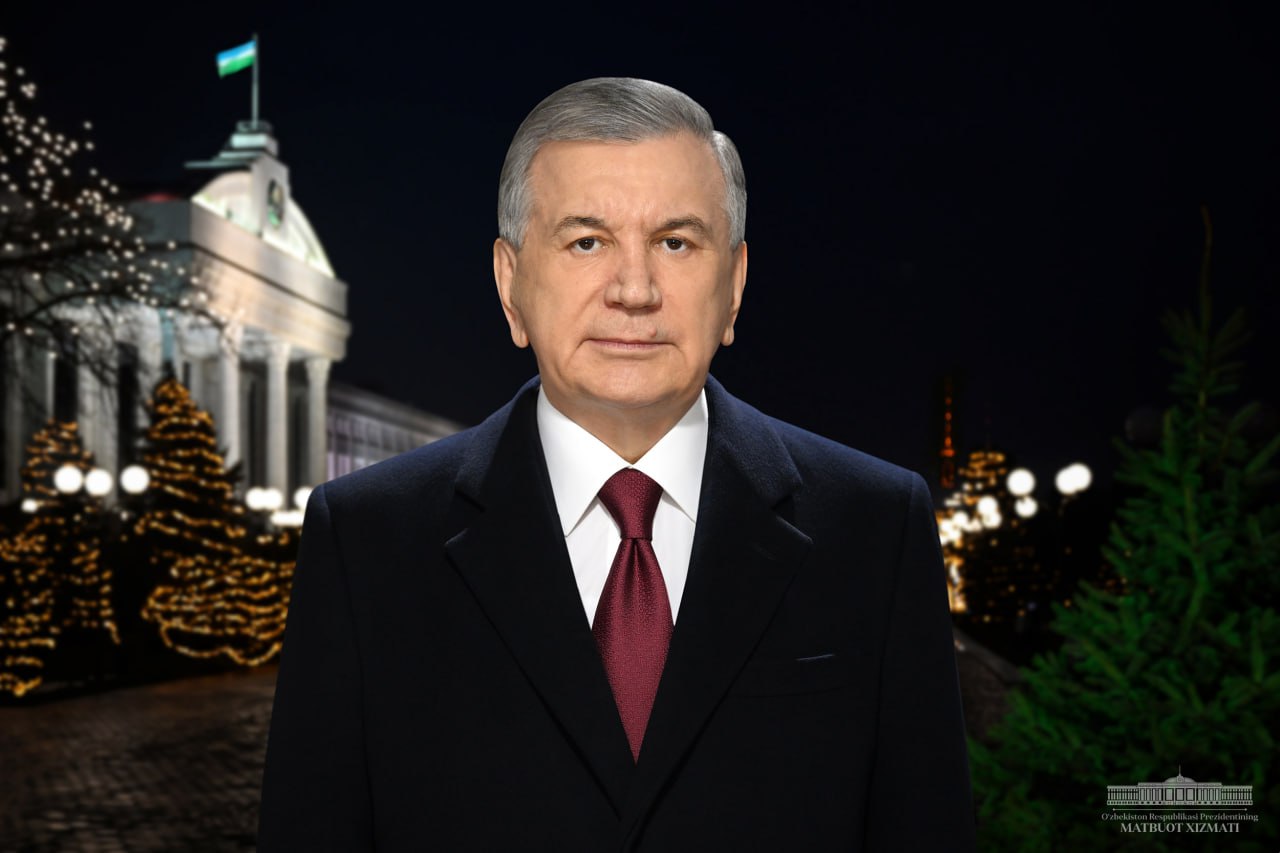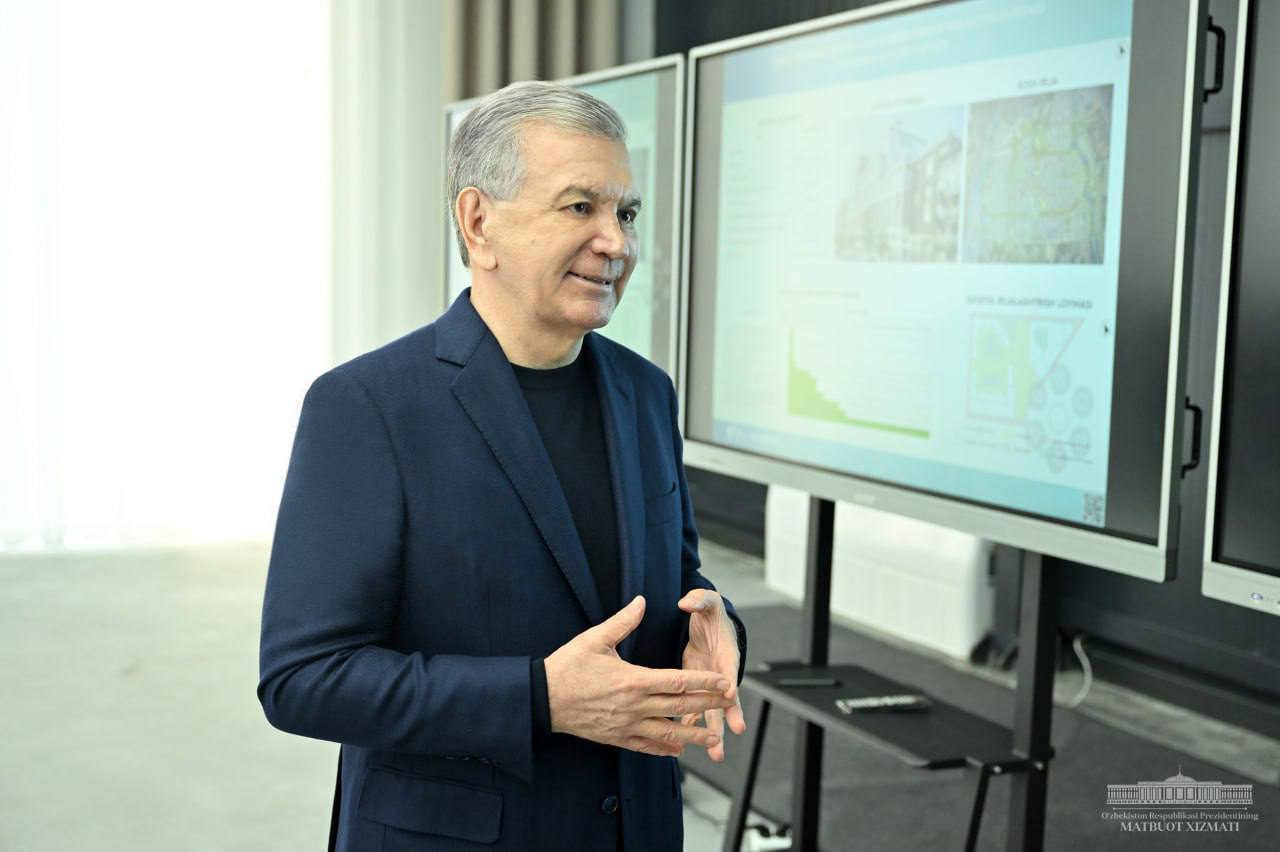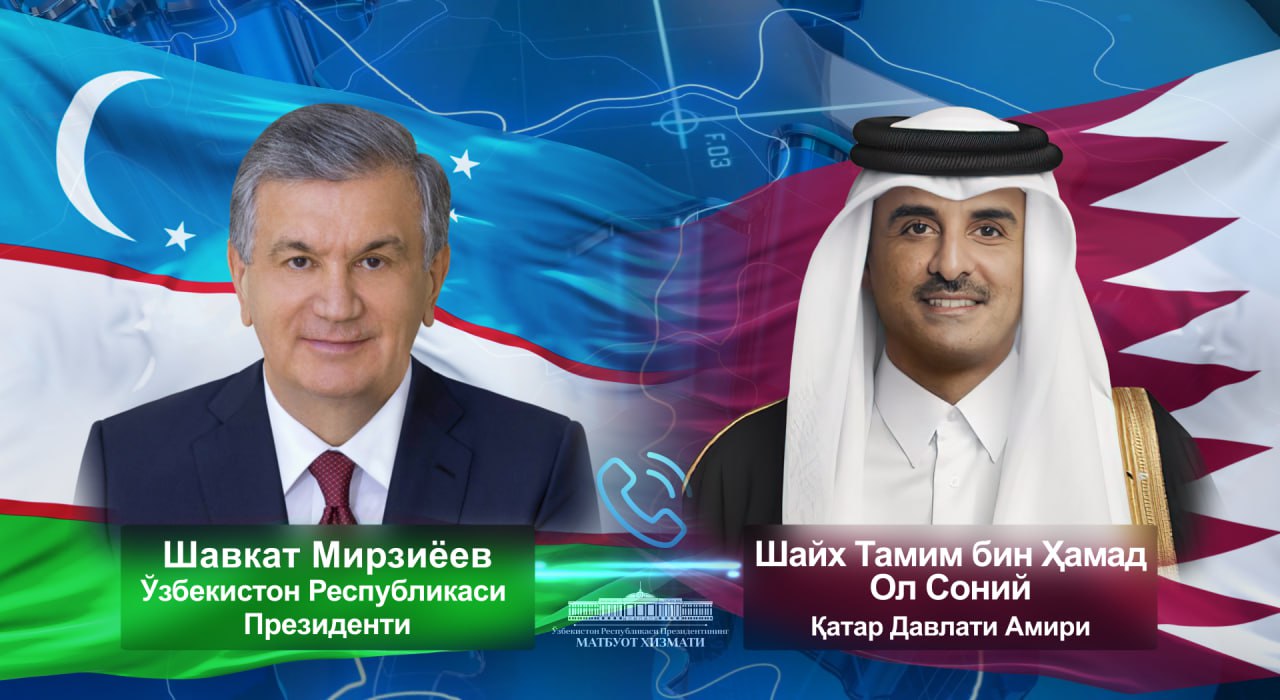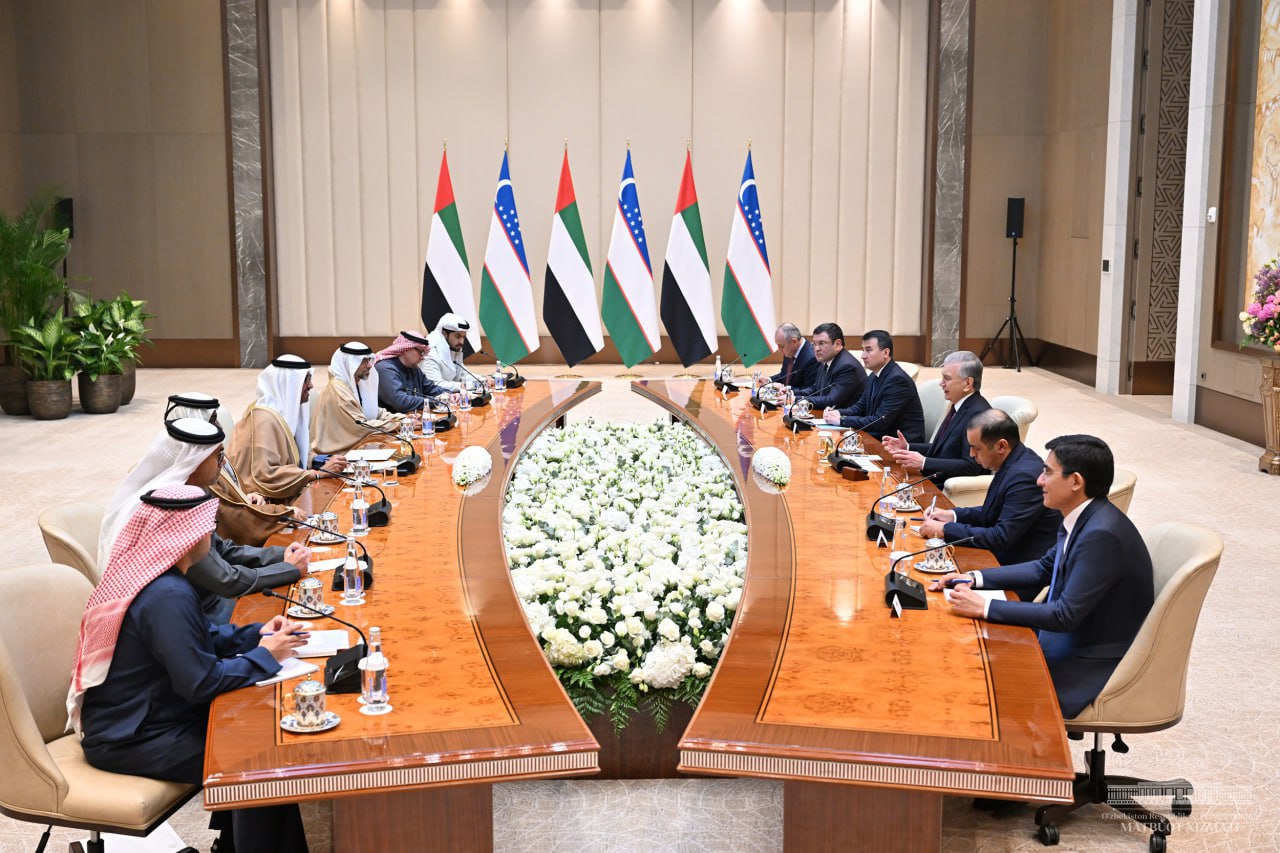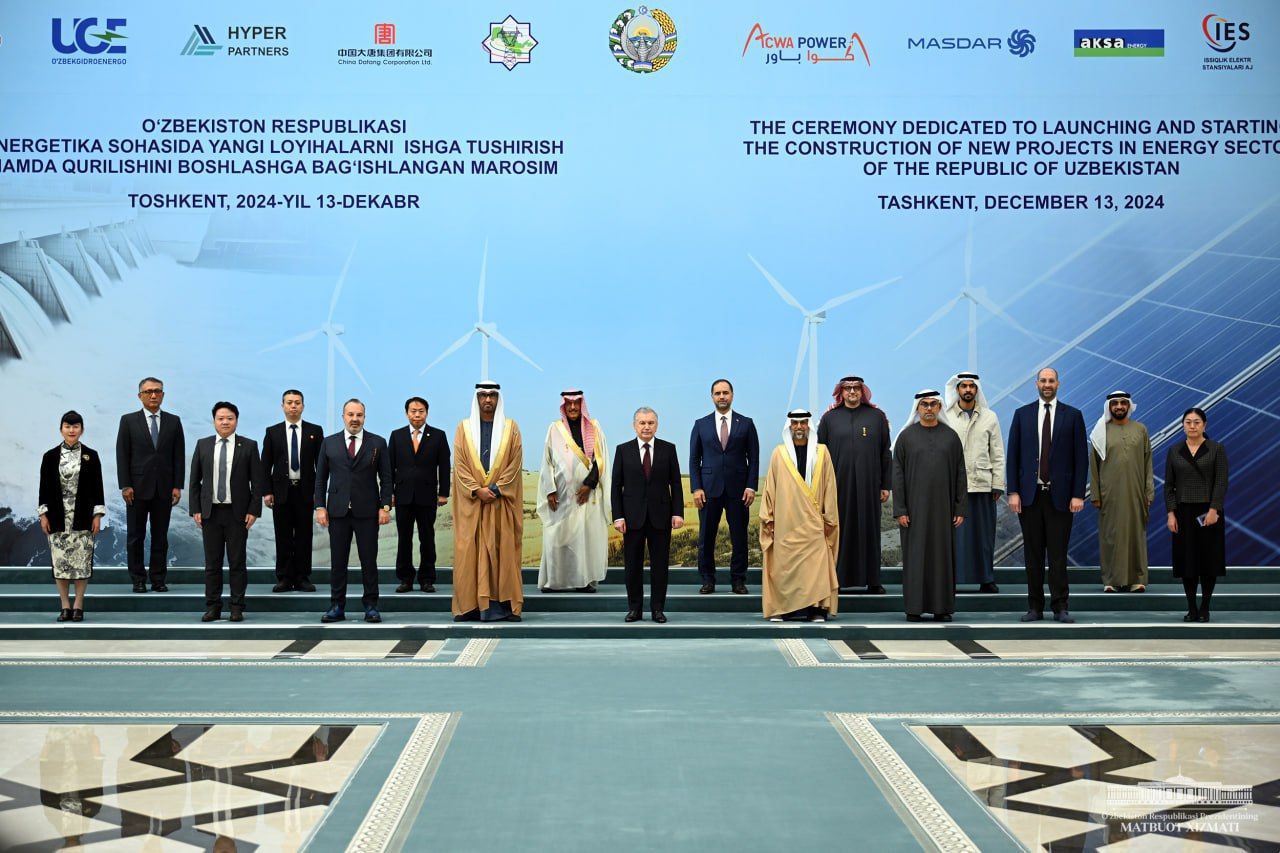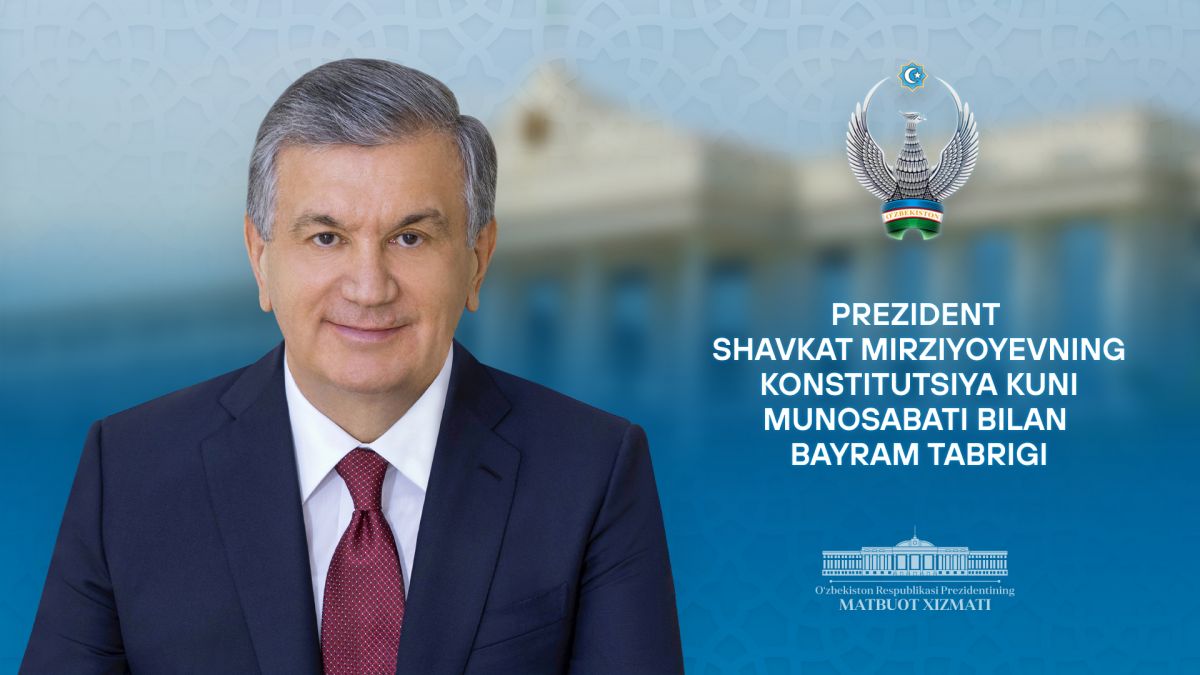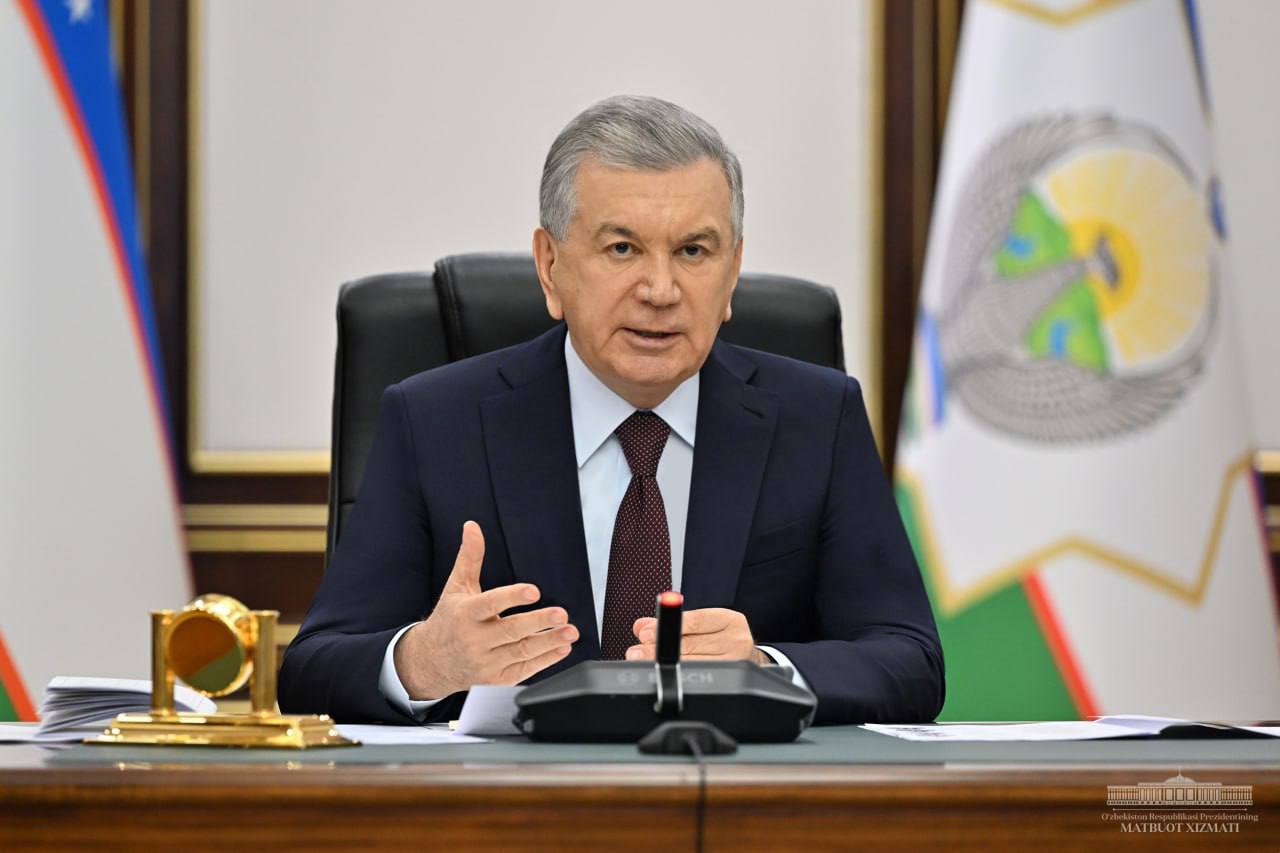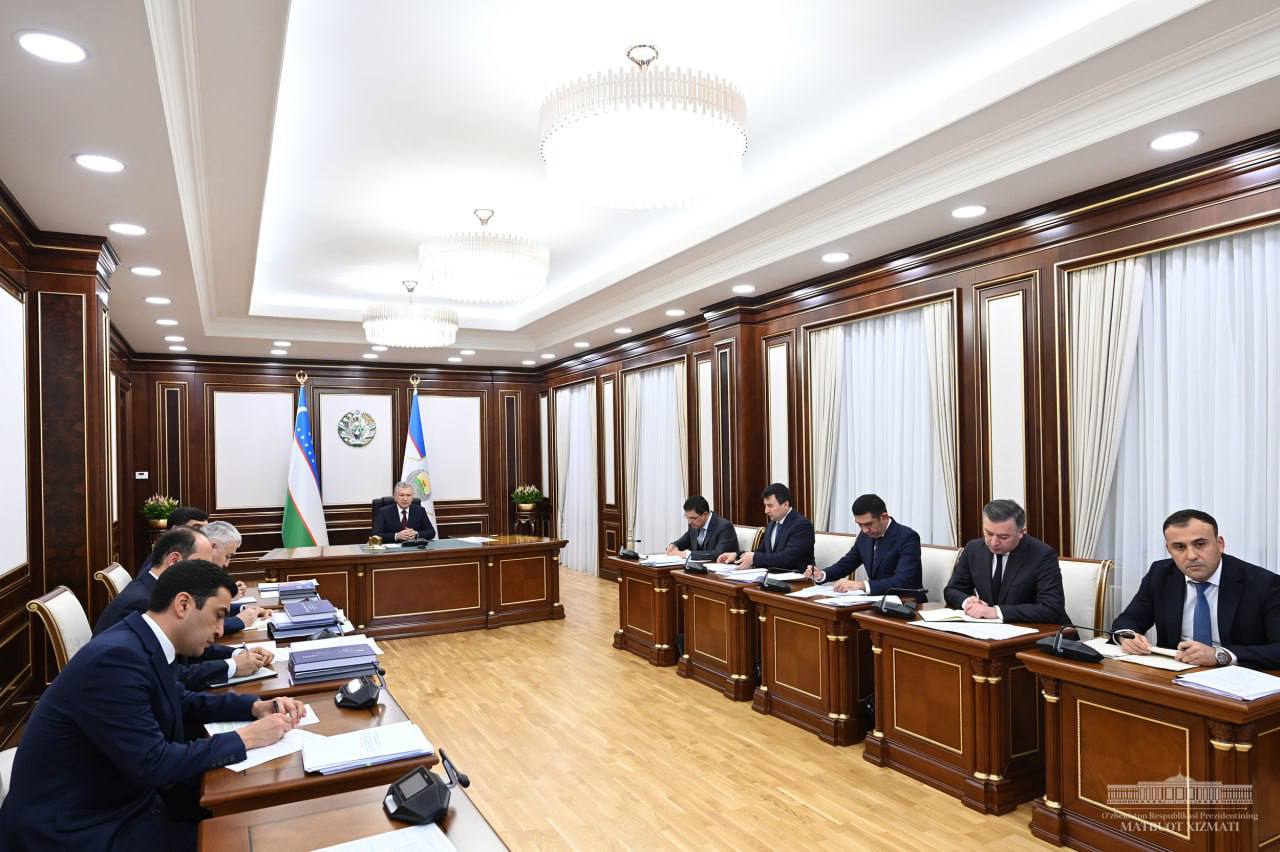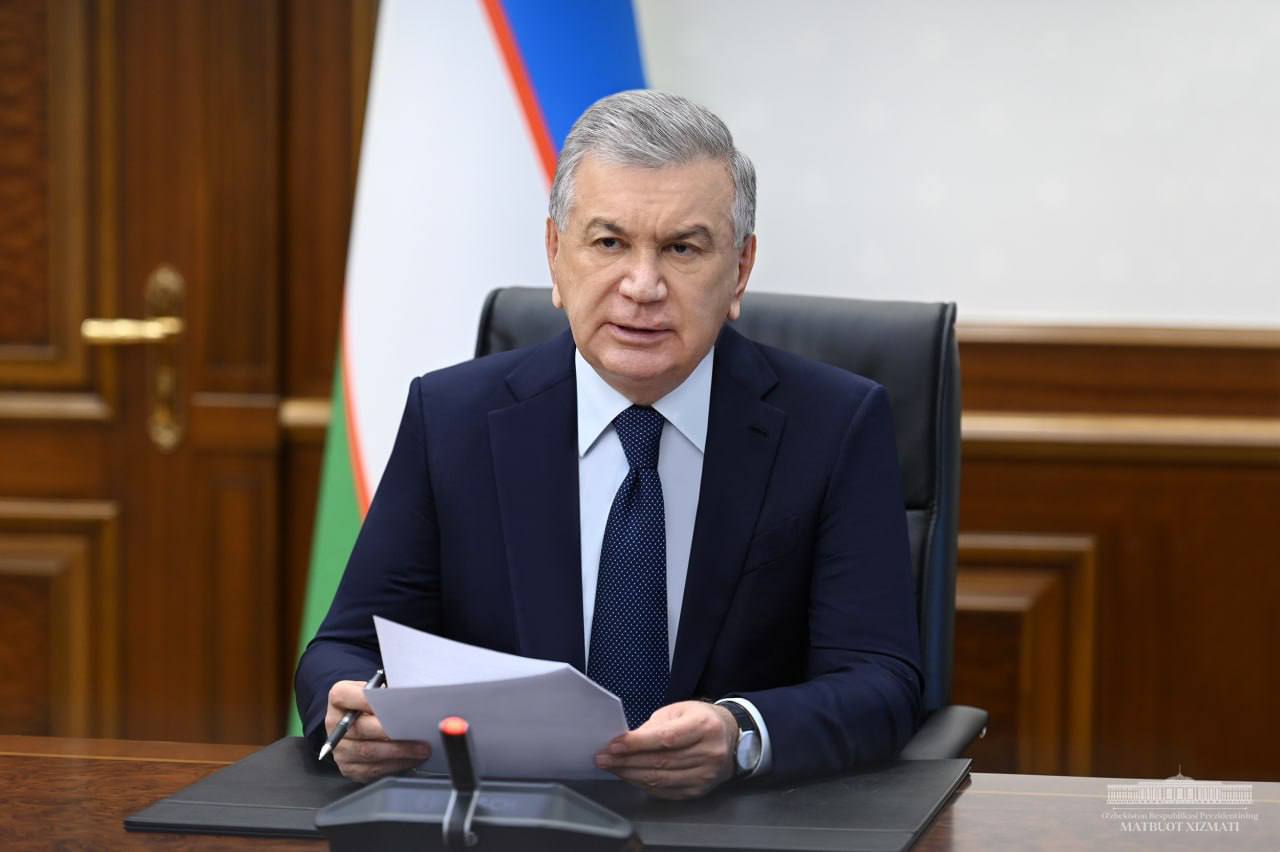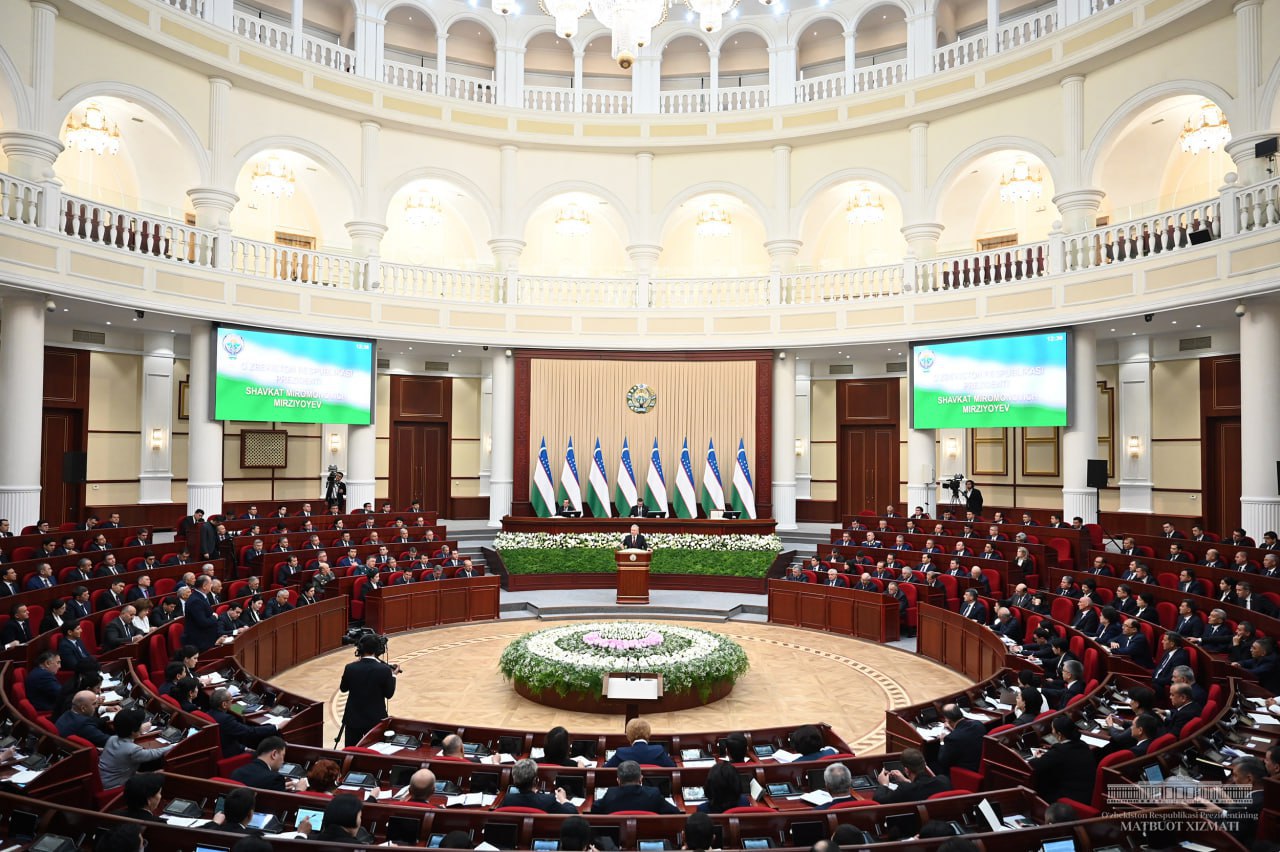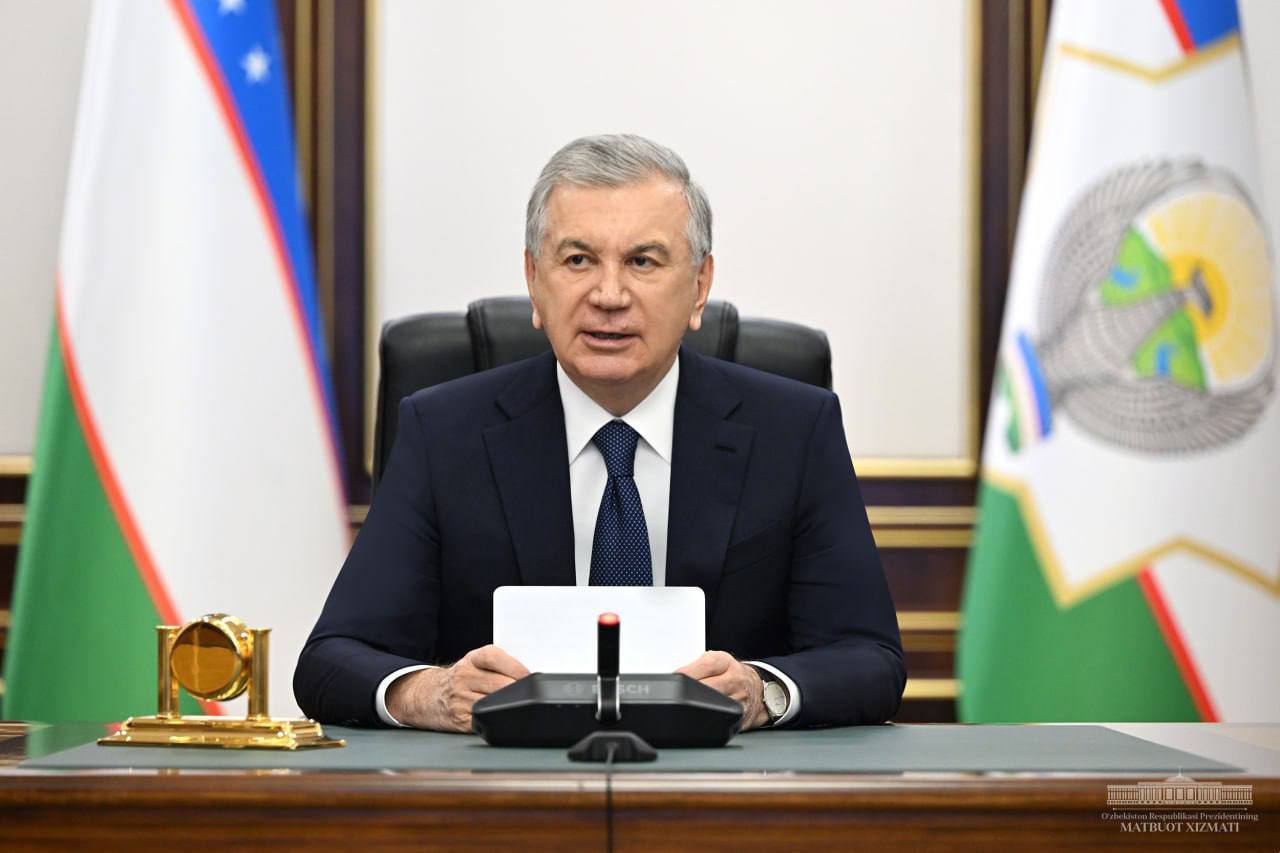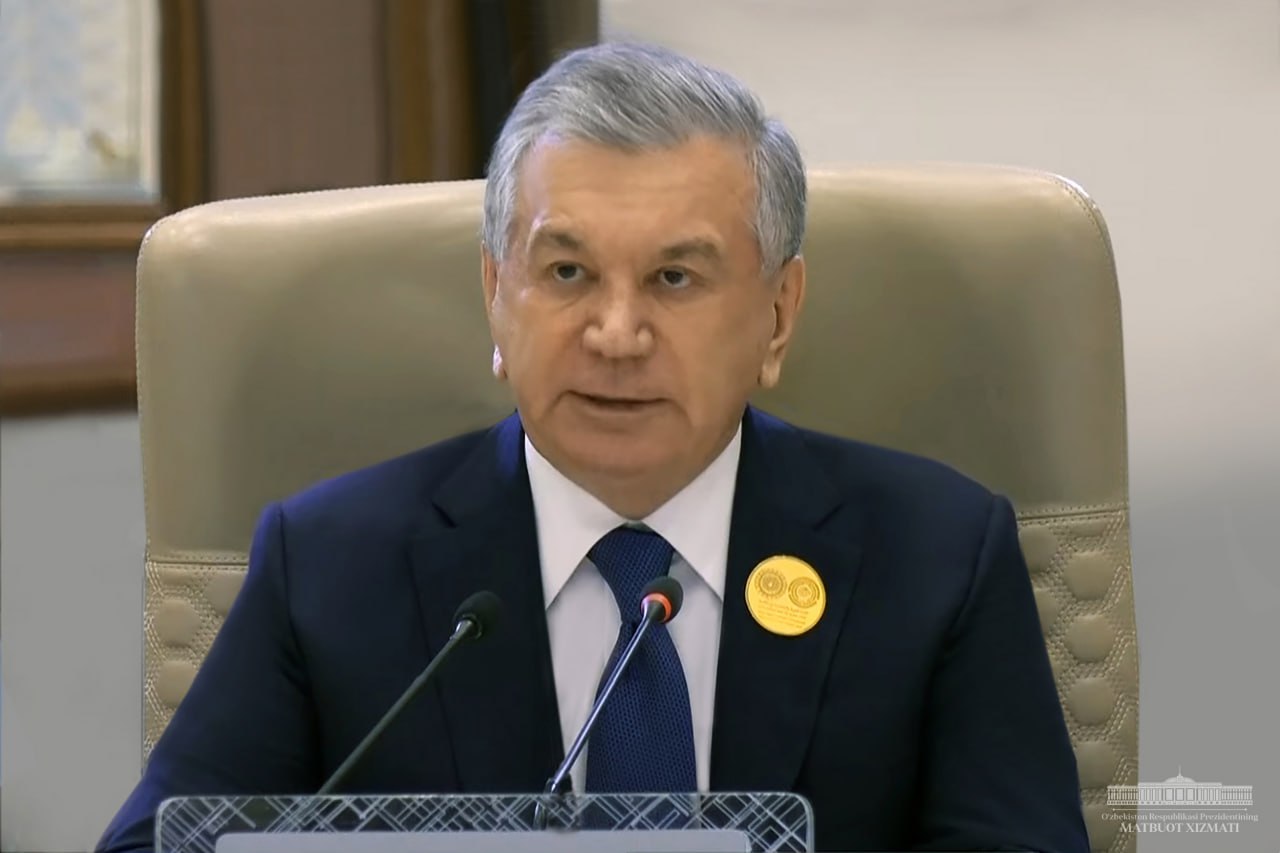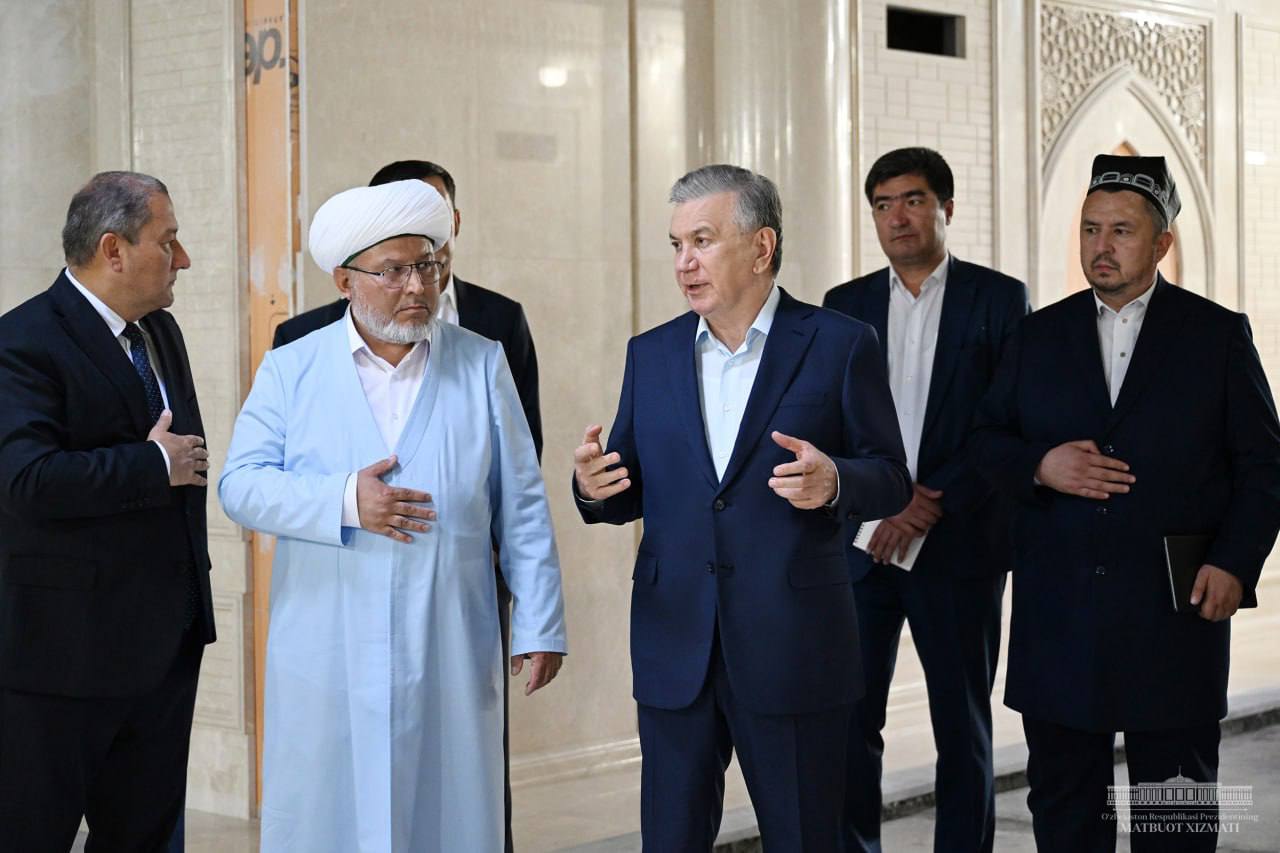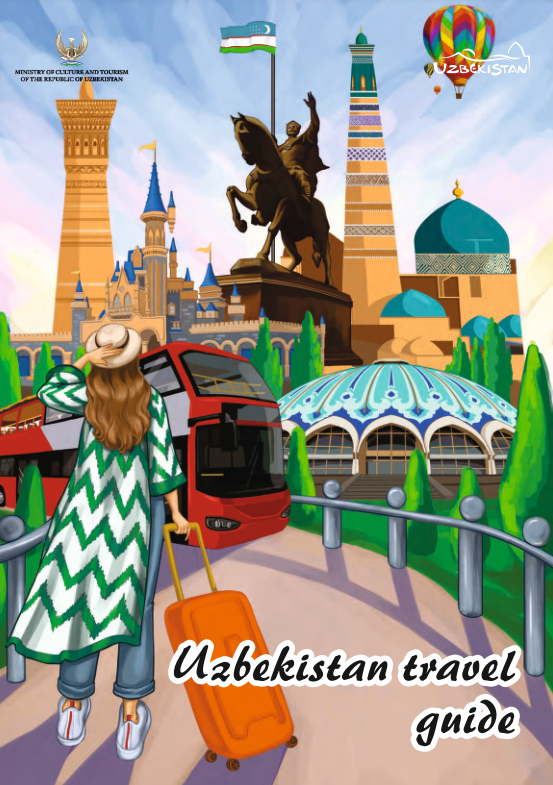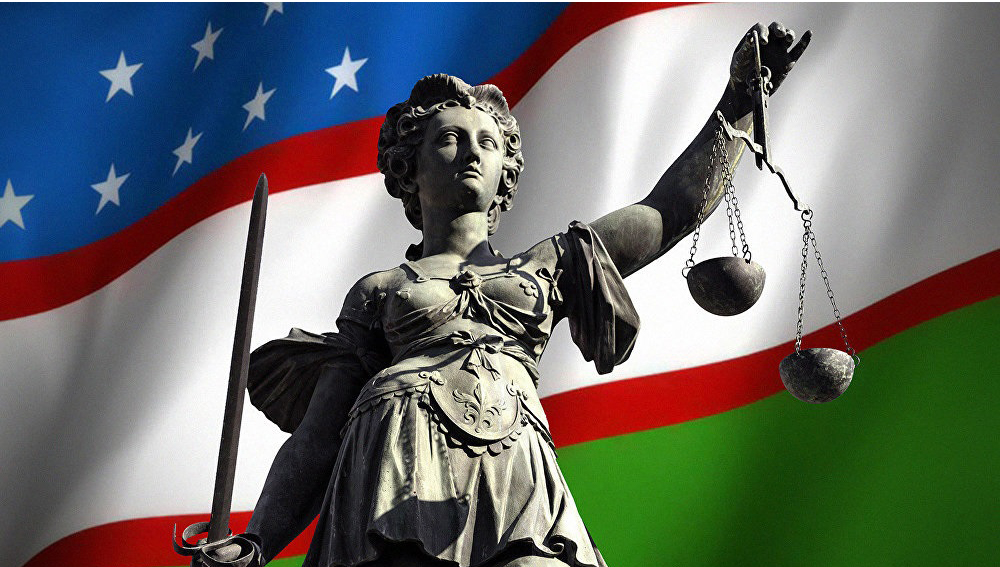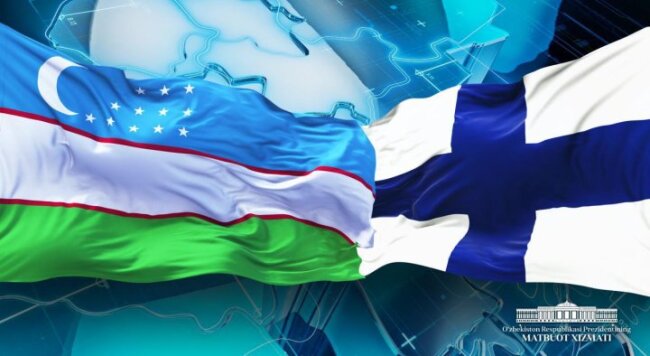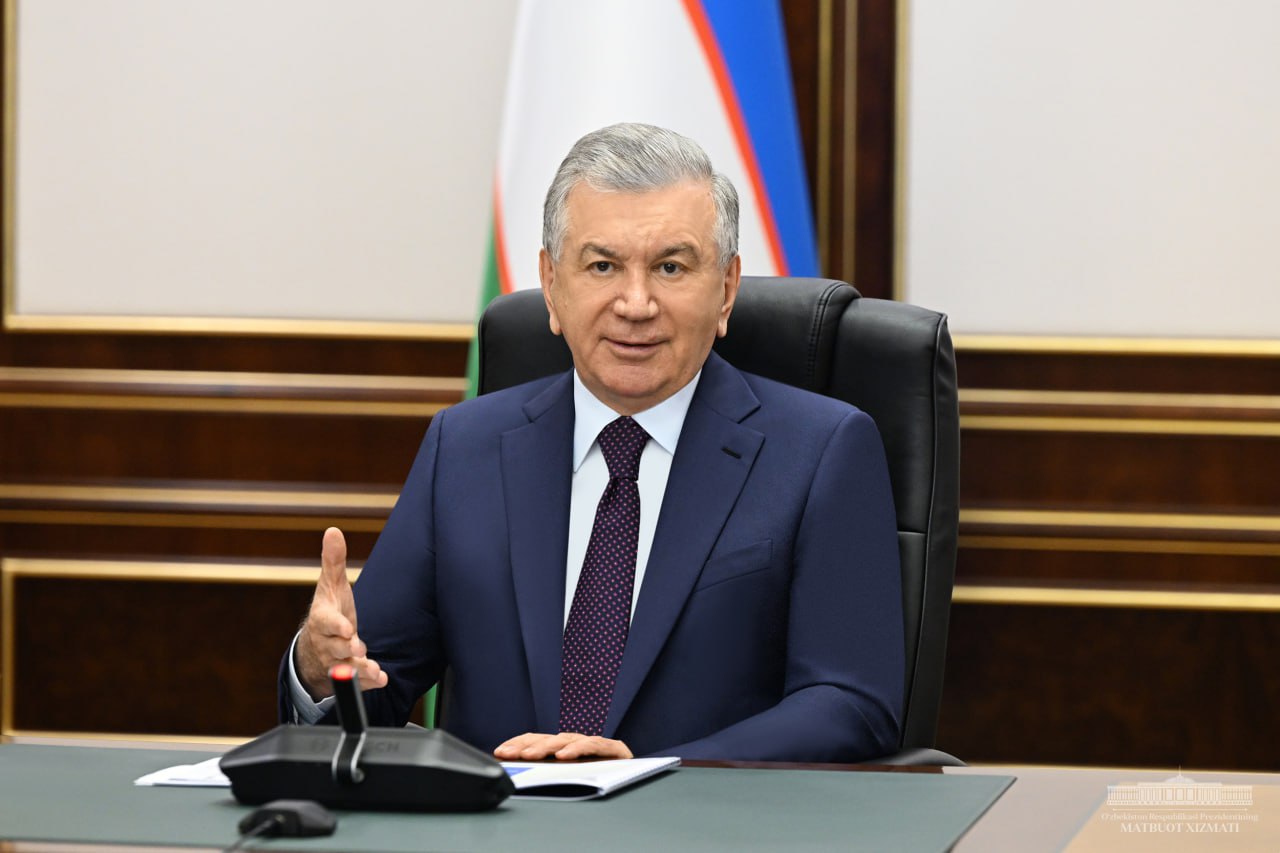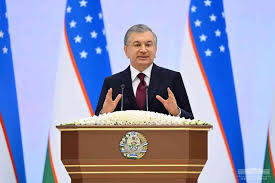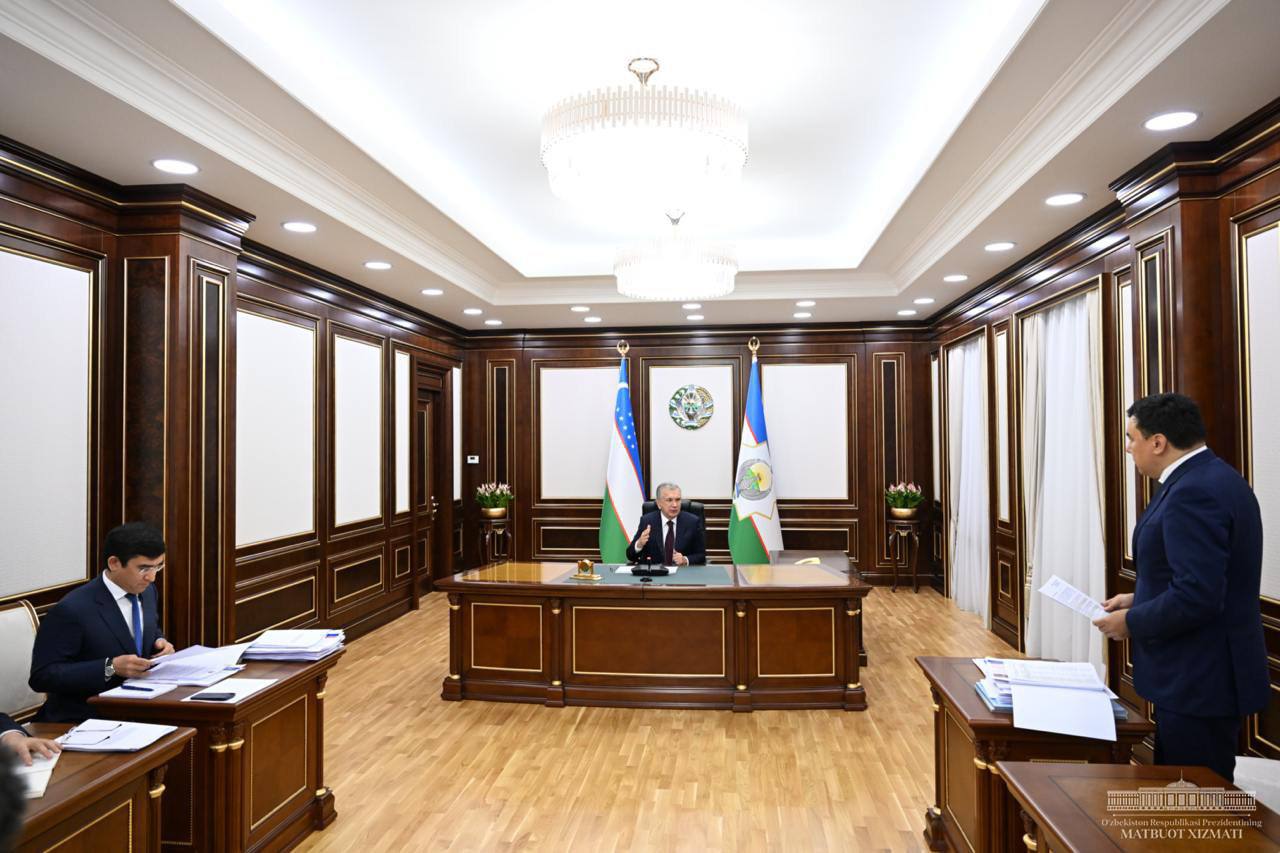Phone
Consular Issues
Phone
Uzbekistan news
We recommend
Surkhandarya the cradle of ancient civilizations
📅 26.06.2025
5 reasons to visit Surkhandarya:
- Explore mountain and ecotourism in the region
- Explore monuments of the distant past
- Learn About Religious Monuments
and cult complex of Sultan Saodat, the Buddhist cult center of Karatepa, the Buddhist temple complex of Fayaztepa, the Jarkurgan minaret, and the Buddhist stupa of Zurmala are the oldest religious monuments of the Surkhandarya region.
- Immerse yourself in the cultural heritage of the region
The folklore festival “Boysun Bahori” (“Boysun Spring”) is held here annually, which reflects the unique rituals, traditions and special culture of the people.
- Taste the national cuisine of the region
Here meat is included in almost all dishes. One of the most delicious dishes of this region is Tandoor Gusht.
Also popular is the dish Chuponcha - shepherd's meat, which is prepared from fresh dairy lamb.
The history of the Surkhandarya region has ancient roots dating back to the beginning of great civilizations. This unique place in Uzbekistan is known for its historical monuments and beautiful nature. The region is located in the foothills of Hissar, Bobotaga, Cohitang, which are famous for their beautiful
landscapes and unique natural formations. The rich reserves of mineral water found in the region are an important source of recreation and have healing properties. A trip to Surkhandarya, will be a fascinating experience, during which you can get acquainted with the unusual landscapes of Uzbekistan, see colorful architecture, and immerse yourself in the unique culture of this region.
Canyon Kyzyl
The Canyon Kyzyl, is located in the Surkhandarya region near the village of Baysun and is translated as “Red Canyon”. The length is 30 kilometers, and the highest point is Mount Buritakht, 1218 meters high. Here, nature has created breathtaking labyrinths, stretching for several tens of kilometers, and every turn of the relief, reveals amazing landscapes. In the spring season, the appearance of the canyon differs from the usual harsh stone appearance, since the surface is completely covered with different vegetation, among which rare medicinal herbs can be found. This place is truly amazing and deserves the status of one of the wonders of Uzbekistan.
Cave Boy-Bulok
In the Chul-Bair Mountain range, located in the Surkhandarya region, there is an amazing cave, called Boy-Bulok. It is considered the deepest in the entire Asian continent and reaches a depth of an impressive 1415 meters. Boy-Bulok is located 60 kilometers from the regional center of Baysun, and is a technically complex facility classified as the fifth complexity category.
In 1985, the first study of this unique place was carried out. Various obstacles were found inside the cave, including vertical bends, narrow vertical shafts up to 180 meters deep, and water-filled passages called half-siphons and siphons. Boy-Bulok has an impressive size that extends both down to a depth of minus 1158 meters, where the impenetrable siphon is located, and up to 359 meters. The very impressive amplitude – is 1517 meters.
Boy-Bulok, located at a depth of 1283 meters, is connected with Vishnevsky Cave. These two caves have a potential connection that is 2033 meters deep and extends for about 30 kilometers. This makes Boy-Bulok the third deepest cave in the world.
Massif Khoja Gur Gur ota
In translation, Khoja Gur Gur ota means “Father of all caves”. At an altitude of 3700 meters above sea level, there is a remote region of harsh and very wild nature. The gigantic, sloping peak of the mountain range ends with an impressive 500-meter-high cliff on one side, and deep canyons with cracks tearing the plateau on the other. Here can be seen fossilized traces of dinosaurs, fragments of basalt and crushed stone of the most bizarre shapes, as well as the burial place of the holy righteous man Khumajoy-ota. The slope of Khoja Gur Gur ota extends vertically and has entrances to many caves, many of which have not yet been explored. In addition, upon reaching the highest point of the massif, you will feel like you are standing on a huge wall separating one world from another.
Machay Cave
Machay Cave is another settlement of primitive people, which is located in the Baysun district of the Surkhandarya region. It is located near Mount Cohitang, on the right bank of the Machay River. The cave is 3.4 to 4 meters high, about 8 meters long and about 10 meters wide. It consists of two cultural layers: the upper layer belongs to the Mesolithic, and the lower layer belongs to the late Mesolithic and early Neolithic. Inside the cave, bones of a man and a woman were discovered that date back to the Mesolithic period. It is of great interest to the scientific community is the availability of material evidence of how people lived in the Stone Age. As a result of research, an abundance of artifacts was discovered in Machay Cave, which indicates the way of life of those times. The finds included 87 different stones, hundreds of weapons made from the bones of 15 different animal species, as well as stone knives, axes, handles, sawtooth weapons, arrowheads, bows and spears. The inhabitants of Machay Cave used these various weapons to skin domestic and wild animals and then use them to make clothing for themselves. These findings are of great value to the scientific community, as they allow us to better understand the lifestyle of people of that time. Surkhandarya – the cradle of ancient civilizations.
Sangardak Waterfall
The Sangardak Waterfall is located among the gorges of the Surkhandarya Mountains, being one of the wonders of the country's natural world. The waterfall is situated in the Sariasi region, 205 kilometers from Termez and 30 kilometers from Denau. Sangardak Waterfall is formed from karst waters flowing inside caves, rather than from a mountain river. As a result, people have created various legends about the waterfall and believe that it has healing properties. Moreover, it is worth noting that even ancient Arabs, Greeks, rulers of Transoxiana, and other peoples came to admire the waterfall.
The Teshik-Tash Cave
The Teshik-Tash Cave is located on the slopes of the Baysuntau mountains. In 1938, during excavations, archaeologists discovered an ancient burial there. Scientists discovered five cultural layers 1.5 meters thick. Clay layers and crushed stones separated the layers. The remains of a Neanderthal child are the most famous finding in the cave, which became famous throughout the world and made the site well-known. Soviet archaeologist A.P. Okladnikov, who discovered these remains, subsequently received the Stalin Prize.
Zarautsay Gorge
The gorge is located in the Kugitang mountains in the Surkhandarya region. These are the southwestern spurs of the Hissar ridge. The discovered cave paintings are rare examples of primitive art. All rock paintings in Zarautsay are written in red ocher, unlike other petroglyphs in Uzbekistan. Impressive hunting scenes with running bulls, goitered gazelles, saigas, arrows, chasing dogs and people with bows and axes, as well as mysterious hooded figures who clearly carry out rituals associated with hunting, can arouse interest and surprise among viewers of this unique ancient art person. Of the 200 images found in 1940, only 40 have now survived in the Zarautsay grottoes.
Dinosaur tracks
Traces of hoofed dinosaurs were discovered in the limestones of the Cretaceous period in the village of Gumatak. The footprints are on a stone slab, which is easily accessible from a car after walking only 300 meters.
Speleologists have also discovered traces of other large dinosaurs in Surkhandarya, but to see them you will need to make a separate trip.
Karyshoto Gorges
In the Surkhandarya region, there is another unusual place, the Karyshoto Gorges. The gorges have karst waterfalls along their walls despite the fact that they are located in hot and dry areas.
As a result, you feel as if you have entered a picturesque oasis. The gorge in several places prevents passage due to the rather high waterfalls. However, when you overcome them, you can see how the gorge continues in two directions.
Canyon Kaptarhona
Several thousand doves have been nesting in this canyon for a long time, which is why this place received the name Kaptarhona, which is translated from Uzbek as “dovecote”.
Once upon a time, the canyon was completely deserted, and its only inhabitants were doves, which were so numerous that one could safely call this place the kingdom of these birds.
Kaptarhona is a winding road along a narrow gorge. Various boulders are scattered along the path. Many attractive and exciting turns hide amazing views.
Khojaikon Salt Cave
In 1989, the Khojaikon Salt Cave was opened, which since then, thanks to the concentration of salt and light negative air ions in the air, has helped people cope with various ailments, such as asthma, respiratory diseases, chronic bronchitis, complications of pneumonia, as well as various skin problems.
The cave is 155 meters long and is a salt monolith inside of which there are treatment room chambers, each of which differs in temperature, humidity, pressure and trace element content. The healing procedure takes only 2-2.5 hours a day.
Meteor Lake Kanbeshbulak
Lake Kanbeshbulak is located in the Khaman tract in the west of Surkhandarya region. The lake is an exceptional natural monument.
According to scientists, this lake was formed as a result of a meteorite fall. In their opinion, it was a meteorite crater that filled with water and became known as Kanbeshbulak. The explosive red sandstones that make up the slopes of the lake indicate the origin of the bowl.
Panjob Gorge
The Panjob Gorge is located in the foothills of the Kugitang Tau ridge in the Surkhandarya region of Uzbekistan, 125 km northwest of Termez. This is a very beautiful gorge in which the small river Gazak, in the Karyshoto mountain range, cuts its way through limestone, gypsum and rock salt, creating a powerful picturesque canyon with vertical cliffs more than 200 meters high.
In some places the width of the gorges can be no more than two meters. In the narrow passages of the gorge, the most beautiful place is a 30-meter section on the right side of the canyon. In this place, water is knocked out of a rock covered with bright green moss, either as a curtain of water or in separate streams, forming a multiple rainbow under the sun's rays.
Surkhan State Reserve
The Surkhan State Nature Reserve is located in the Surkhandarya region of Uzbekistan, just 60 kilometers from the city of Termez. The reserve was created in 1986 by combining the Kugitang and Aral-Paigambar reserves. The purpose of its creation was the preservation and restoration of rare species of plants and animals.
The reserve consists of two separate parts, located in the Sherabad and Termez districts of the Surkhandarya region. The reserve occupies 24,554 hectares and is located in the southwestern spurs of the Hissar ridge at an altitude of up to 3,157 meters above sea level. The Surkhan Reserve currently has more than 130 species of birds, as well as more than 25 species of mammals, 27 species of reptiles, and 2 species of amphibians and fish.
Kampyrtepa Fortress
Kampyrtepa is an ancient archaeological site on the territory of Uzbekistan, which is an ancient port city located on the banks of the Amu Darya River (formerly known as the Oxus). It was founded at the end of the 4th century BC and existed until the beginning of the 1st century AD. The main purpose of this settlement was to serve the crossing of the Burdaguy River, as well as to serve as a hotel and customs office. Kampyrtepa served as a transit point for traders traveling along the Silk Road, where they could rest, reload their goods, pray and continue their journey.
After decades of excavations and studying written sources, it was decided that the site of Kampyrtepa is the mysterious Alexandria Oxiana, a port city that Alexander the Great built on the Amu Darya.
Topalang Reservoir
Uzbekistan is famous for the presence of two significant rivers - the Amudarya and the Syr Darya, which flow through its territory and flow into neighboring countries. The Hissar mountain ranges serve as a source for the Topalang River, which originates on the southern slope. It should be noted that the most abundant right tributary of the Surkhandarya has a length of 117 kilometers. The main source of water replenishment in the Topalang River is seasonal snow and glacial water. It is thanks to this that the river supplies water to the Denaus, Shurchin and Kumkurgan districts of the Surkhandarya region.
Hospital “Khojaipok”
Khojaipok Hospital specializes in the treatment of various diseases, including gynecological problems, cardiovascular disorders, general therapy and neurological disorders. To achieve a positive result, various methods are used, such as hydrotherapy (including mineral baths and circular showers), heat therapy, mud therapy, physiotherapy, electrotherapy and ozone therapy.
Upon completion of the procedures, visitors can visit the natural beauty, swim in the resort's pool, play tennis or engage in other outdoor activities in the sports club.
Sanatorium “Omonkhona”
The Omonkhona Balneological Sanatorium, located in the mountains near the city of Baysun, and the Khojaipok Hospital, located at the foot of Mount Kenagi, are the most famous health complexes in the Surkhandarya region.
The thermal water in the Omonkhona sanatorium has healing properties and is part of the health programs of the sanatorium. Using magnetic therapy, laser therapy, acupuncture, water procedures, massages, liver cirrhosis, hepatitis and other diseases are treated.
Hissar Mountains
The Hissar Mountains are a mountain range that stretches 200 kilometers from east to west across the Hissar region of Tajikistan. It is the western part of the Pamir-Alai system. The highest point in Uzbekistan, Khazret-Sultan, is 4643 meters, located on the border of Uzbekistan and Tajikistan. The ridge is a place of unique geological outcrops in Eurasia. The structure consists of sandstones and crystalline rocks interspersed with granite intrusions. In addition, all ecosystems and climates of the Pamir-Alai are represented here. At the highest places there are glaciers and rocky wastelands. A famous natural attraction of the Hissar Ridge, located in the southern part of the mountains, is the cave of Amir Temur. This natural formation, stretching for 860 meters, is considered the largest underground lake in Uzbekistan. It is important to note that the cave was inhabited back in the Greco-Bactrian period (IV-III centuries BC).
Archaeological Museum of Termez
To celebrate the 2500th anniversary of the city of Termez in 2002, the Termez Archaeological Museum was built and opened. Today it is the only archaeological museum in Central Asia, and many of its unique exhibits date back more than 100 thousand years BC. These include 624 museum relics of global significance, displayed using the latest information and communication technologies.
Karatepa Complex
Located in the northwestern part of old Termez, Karatepa is a place of worship associated with Buddhism. On the three hills of this place there are various temples and monasteries that were built in the 2nd century AD. The architecture of Karatepa is remarkable for its unique combination of caves carved into sandstone and buildings made of pakhsa and adobe.
Zurmala Stupa
Northeast of the ruins of the ancient settlement of Termez is Zurmala, a 12-meter-tall Buddhist stupa. It was built during the Kushan period, around the 1st and 2nd centuries AD, while Buddhism was spreading in Central Asia. The modern city of Termez is located 10 kilometers west of the ancient settlement of Termez. On its outskirts one can see the remains of entire complexes of ancient Buddhist buildings, which in the Middle Ages covered agricultural fields. Over time, the Buddhist stupa turned into a clay mound, which was difficult to recognize as a ritual structure.
Mausoleum of Al-Hakim At-Tirmizi
Al-Hakim At-Tirmizi is a sacred place of worship for Muslims and an architectural monument. The mausoleum is one of the holy places of the Surkhandarya regional center. The architectural monument is located approximately 60 kilometers from the current center, northwest of old Termez. Abu Abdulloh ibn Hassan ibn Bashir Al-Hakim At-Tirmizi is an outstanding Islamic figure, author of various philosophical and religious works and founder of the order of Dervishes. About 80 works were written by the eminent At-Tirmizi who received the name Al-Hakim, which means the wise one, due to his deep knowledge and broad vision.
Mausoleum of Ak-Astana-baba
In the village of Telpek-Chinar, Sariasi district, Surkhandarya region, there is the Mausoleum of Ak-Astana-baba. Scientists believe that the mausoleum was built on the grave of the companion of the Prophet Muhammad (SAW), Saint Abu Hurair. The mausoleum has four rooms called “Chorsi Khona,” in which bricks are laid in batches, and the north-eastern part of the complex can be accessed through the roof. At the entrance to the mausoleum, there are two complex signs, about half a meter in diameter. It is still not possible to correctly interpret the semantics of these signs.
Kirk Kiz Fortress
One of the most interesting ancient places is the Kirk Kiz Fortress. Although the fortress is almost completely destroyed at present, even the ruins allow us to see the former size of the structure and marvel at the skill of the ancient architects. The symmetry of Kirk Kiz makes it unique; each archway and corridor have a counterpart located on the opposite side.
Two passages cross the building crosswise and divide it into four equal parts. There are versions that it was a country aristocratic palace, a women's madrasah, a khanaka, or a caravanserai.
Dzharkurgan Minaret
The minaret is located 5 kilometers from the city of Jarkurgan and 40 kilometers from Termez, near the village of Minor. Thanks to the deciphered inscription on the building, it was established that this architectural monument dates back to the 12th century. The inscription states that construction took place from 1108 to 1109 AD, but some scholars believe the date reads differently and construction was completed in 1110.
This building is unique with its decorative elements. At that time, mosaics were often used to decorate minarets; in the case of this minaret, we see vertical decorative corrugations that were made using a specially baked brick masonry, which was cut in a herringbone pattern from top to bottom.
Dalverzintepe Settlement
Dalverzintepe, the main city of the powerful Kushan Empire, has so far been the subject of careful study by many historians and archaeologists. With its secrets and many valuable objects found, the site attracts attention. The largest treasure in history was found here; about 36 kilograms of gold were discovered in this place in 1972.
Archaeological excavations have revealed a lot of new things about the architecture, culture and fortifications of Northern Bactria. Finds such as sculptures, paintings and figurines show the high level of culture of the people of the Kushan Era. According to many researchers, Dalverzintepe is considered the most ancient Buddhist building.
Ensemble Sultan-Saodat
On the outskirts of the city of Termez in the center of the Surkhandarya region of Uzbekistan there is the architectural ensemble of Sultan-Saodat. The memorial complex consists of tombs of the Termez Seyyids, who were considered direct descendants of the Prophet Muhammad. The complex contains various memorial and religious buildings built from the 11th to the 17th centuries. All buildings have a common architectural concept despite the fact that they were built at different times.
Hanaka Kukildor-ota
Khanaka Kukildor-ota in Termez is a holy monastery that has become one of the most revered among Muslims. Khanaka Kukildor-ota was built in the mid-1100s. It stands out among other monasteries due to its unique architecture, history and significance in the Muslim world.
The building contains numerous tombstones, as well as the burial place of the Muslim Saint Kukildor-ota. This prominent religious figure was known for his great righteousness. The monastery was built in memory of him.
After the restoration of the Khanaka, Kukildor-ota acquired a unique appearance, which is characteristic of all architectural monuments of the Timurid era.
Fayaztepa Complex
Fayaztepa is located at a distance of 4 kilometers from modern Termez, Surkhandarya region. The monastery complex consists of 13 rooms and an inner courtyard with an ivan where a refectory was attached to the monastery on the left side. In some places of the complex there are cooking fires, as well as skulls with inscriptions in Bactrian and other ancient languages. Coins of Heliocles (the Greco-Bactrian king) and Kanishki (the ruler of the Kushan Empire) were also found there. According to archaeological excavations, monks used to live in the monastery, and they also provided housing for pilgrims.
In the IV century, Fayaztepa was captured by the Sassanid army (the dynasty of Persian rulers), due to which the complex stopped functioning. Previously, the complex was called Khaya-Vihara, which translates as "the monastery of horsemen". The current name of the complex was given in honor of the director of the Surkhandarya Museum of Local Lore R.F. Fayazov, who participated in the excavations of the Buddha complex.
Neighborhoods of Derbent
The Derbent mountain village is located on an important trade route along the Sherabad River, connecting the southern regions of modern Uzbekistan, Northern Afghanistan and Tajikistan with the central cities of Samarkand, Bukhara and Tashkent, which were known at the time as Shash. The land around Derbent looks heavily damaged — high rocks either form a majestic gate, or almost merge overhead, reminding us of the bloodshed here while defending the borders of different empires.
Also, travelers can expect places that surprise with their power, strength and pristine beauty. Here you will find gorges including the famous Iron Gate, which was besieged by Alexander the Great.
The Church of Alexander Nevsky
In 1901, a temple was erected in the city of Termez in honor of the Holy Prince Alexander Nevsky. Currently, the temple is in excellent condition. The sanctuary is impressive in its scale: the bell tower and iconostasis occupy a significant space. Inside the temple there is a room measuring 24 by 16 meters. In addition, the temple is rich in icons and church objects.
Kurganzol Fortress
The Kurganzol Fortress is an impregnable structure built in 328 BC by Alexander the Great, located on a cliff near Baysun at an altitude of 900 meters. Archaeological excavations of Kurganzol began in 2003 and revealed that it belongs to the Hellenistic era. The fortress dates back to the 4th century BC and is believed to have housed about fifty soldiers, with six towers protecting the entrance. Construction took a long time to complete, as nomadic tribes frequently attacked and destroyed parts of the building during those years.
Inside the fortress, parts of residential and utility rooms, a water pool with a drain to prevent overflow, and defensive structures were discovered. Built of mud bricks, the fortress has an outstanding appearance, with walls averaging more than 2.5 meters thick.
Uzundara Fortress
Uzundara, the oldest fortress dating back to the 3rd–4th centuries BC, is located in the foothills of Baysun. The fortress featured powerful defensive structures, including double walls reinforced with 13 towers, and outer walls stretching nearly 1 kilometer in length. The fortress walls, lined with clay bricks, have almost retained their original appearance and rise up to 5 meters high.
Among the main finds discovered during the expedition are unique coins from the Hellenistic period depicting Alexander the Great, Antiochus I (king of the Seleucid state), and all rulers of the Greco-Bactrian kingdom from Diodotus to Heliocles. The fortress existed for about 150 years before being destroyed by the nomadic tribes of the Saks and Yuejs during the reign of one of the last Greco-Bactrian kings between 171 and 166 BC
The President visited the mausoleum of Imam Bukhari
📅 15.06.2024
President Shavkat Mirziyoyev visited the mausoleum of Imam Bukhari on June 15, on the eve of the holy Eid al-Adha holiday.
Surahs from the Koran and dua were recited.
In conversation with religious figures, they talked about the conditions created for the development of science and enlightenment, education of youth in the spirit of patriotism and respect for national values.
Renovation of the complex is underway. The head of state familiarized himself with the progress of construction and finishing works.
The President concluded his visit to Samarkand and left for Tashkent.
The development of Uzbek-Azerbaijani cooperation
📅 02.07.2025
Cooperation with colleagues from Azerbaijan is underway in this direction.
1. In the current geopolitical situation, there is a tendency of transition from traditional transportation routes to alternative, more reliable, involving the use of different modes of transport, which contributes to the growing attractiveness of multimodal transportation.
2. Uzbekistan's cooperation with Azerbaijan is strengthened
New reforms in the judicial and legal system of Uzbekistan are aimed at practical results
📅 01.07.2024
The main goal of state policy in the penal sphere in Uzbekistan is aimed at liberalizing punishment and the system of its execution. Based on this, a number of strategic objectives have been identified. In particular:
Firstly, crime, improvement and liberalization of criminal and criminal-procedural legislation, decriminalization of specific criminal acts, humanization of criminal punishments and the procedure for their execution were determined as one of the priority directions for improving the state and society building system in the Action Strategy of the Republic of Uzbekistan in 2017-2021.
Secondly, the Resolution of the President of the Republic of Uzbekistan “On the Concept of improvement of criminal and criminal-procedural legislation” was adopted on May 14, 2018. It was aimed at improving the criminal responsibility and punishment system, in particular, eliminating forms and types of punishments that do not meet to modern requirements, and preventing crimes. The task of introducing types of punishment and other legal measures, simplifying punishment or expanding the norms regulating the conditions of criminal responsibility or exemption of person from liability was established.
Thirdly, the implementation of qualitatively new mechanisms for ensuring the unconditional observance of the rights of prisoners, respect for their honor and dignity, priority tasks such as further expansion of the scope of rights of convicts in accordance with generally recognized international standards were determined in the Decree of the President of the Republic of Uzbekistan dated on November 7, 2018 “On measures to radically improve the criminal and executive legislation”.
Fourthly, the necessity to ensure labor, social security and other internationally recognized rights of convicts, people who have served their sentences, to introduce effective mechanisms to help their social adaptation and reintegration into society, and widely introducing the principle of humanitarianism into the penal system was noted as the essential and necessary condition for the development of the law priority principles in the Development Strategy of New Uzbekistan in 2022-2026;
Fifthly, the task of reducing the practice of imprisonment from 30% to 20% was strengthened as the main criterion for reforms in the judicial system in the strategy “Uzbekistan – 2030”.
Sixthly, new version of the Constitution of the Republic of Uzbekistan was adopted pursuant to the Referendum on April 30, 2023, in which human rights and freedoms are guaranteed based on the universally recognized norms of international law, as well as the prohibition of the death penalty.
Meanwhile, 3 laws, 2 decrees and 7 resolutions of the President of the Republic of Uzbekistan, more than 20 resolution and decrees of the government, more than 15 departmental and interdepartmental regulatory legal documents aimed at further improving the system of execution of punishment for the implementation of these strategic goals were accepted.
As a result, the range of rights and legal interests of the prisoners were expanded and brought into line with international standards.
It is worth noting that at the initiative of the President Shavkat Mirziyoyev, the work on ensuring the rights and freedoms of prisoners serving sentences in penitentiary institutions has reached a completely new level.
In particular, based on the Decree of the President of the Republic of Uzbekistan dated on April 2, 2021, “On additional organizational measures to further improve the activities of internal affairs bodies in the field of ensuring public safety and fighting crime”, the followings were determined:
to increase the effectiveness of educational work on the moral correction in order to prevent re-offending, to improve the system of execution of punishment, to ensure the protection of the rights, freedoms and legal interests of prisoners;
to ensure the priority importance of honor and dignity of prisoners, to introduce transparent and more effective legal mechanisms of moral education and labor training for social adaptation of convicts to society in the future;
to radically improve the criminal-executive legislation, taking into account modern international standards and advanced foreign experience;
to ensure strict discipline and legality in penitentiary institutions and investigative detention centers, to prevent corruption, and fully automate the processes of monitoring the condition of prisoners;
to create opportunity to purchase items in the prescribed manner by prisoners in penitentiary institutions, and their relatives as well, through electronic stores based on free market mechanisms;
to maintain the electronic database of information about the behavior and personality of each prisoner and fully digitize the process of distribution of prisoners in order to correctly determine the tactics of re-educating prisoners and prevent them from committing crime.
A number of practical results have been achieved as a result of the comprehensive reforms implemented in the field of criminal punishment.
Particularly:
Firstly, the restrictions on the visits of juvenile prisoners with their parents were removed, and female prisoners were given the right to visit their children in orphanages on unlimited basis.
Secondly, special attention was paid to the education and vocational training of prisoners, and the activity of "Master-Apprentice" schools was launched in penitentiary institutions.
In fact, there are 6 general educational schools and 4 vocational centers operating in the penitentiary institutions at present. More than 2,000 convicts are trained in such schools, and more than 5,000 in the vocational centers are trained in tailoring, carpentry, furniture making, auto electrician, electrician, locksmith and other professions, and they are given certificates in 16 specialties in total.
Thirdly, according to the law “On Education"” the right to distance education was given to prisoners in penitentiary institutions.
Henceforth, the dream of the prisoners who want to get higher education was fulfilled. 25 prisoners were admitted to the prestigious national higher educational institutions, as well as branches of international higher education institutions in our country in 2021-2023.
Fourthly, special attention was paid to the social welfare of prisoners, and the right to pension was guaranteed (as of January 1, 2024, pensions were granted to 676 prisoners) and it was determined that social insurance would not be deducted from wages. The number of phone calls, visits and meetings of the prisoners has almost doubled.
Fifthly, in the direction of expanding the political rights of prisoners, the requirements of the International Covenant on Civil and Political Rights, as well as the positive experiences of France, Germany, the Netherlands, the United Kingdom, Germany, and Turkey, are implemented into national legislation, and the right to vote was given for the first time for prisoners who are serving sentences for crimes of low social risk and less serious crimes.
On this basis, 3,619 prisoners in the 2019 Parliamentary elections, 8,203 prisoners in the 2021 Presidential elections, and 9,738 prisoners in the 2023 referendum exercised their political right to vote.
Sixthly, the procedure for the visit of the Representative of the Oliy Majlis of the Republic of Uzbekistan on Human Rights (Ombudsman), diplomatic corps, representatives of international, republican and local non-governmental non-profit organizations, foreign and local mass media to prisons was established.
Seventhly, With the Decree of the President of the Republic of Uzbekistan “On the Development Strategy of New Uzbekistan in 2022-2026”, a system of providing “initial socio-material support package” was introduced to help citizens who have served their sentences to find their place in society in the future.
Eighthly, in order to allow and support the convicts who realized the mistake of their actions, sincerely repented and resolutely chose to the path of recovery, the mechanism of “pardon” was established by the head of our state which is considered clear example of forgiveness and nobility of our nation.
In particular, in 2017-2024, a total of 7128 convicts were pardoned by the relevant decrees of the President of the Republic of Uzbekistan, 219 of them were foreign citizens and 377 were women.
Ninthly, according to the relevant decree of the government, certain information in prisons that cannot be disclosed until now, including:
the number of persons detained in penitentiary institutions and investigative detention centers;
the number of penitentiary institutions and investigative detention centers and their locations;
the production activities of penitentiary institutions, the goods produced by them according to the nomenclature and expressed in money;
the number of deaths among persons detained in penitentiary institutions and pretrial detention centers;
information on the number of prisoners kept in penitentiary institutions and subjected to coercive medical measures was disclosed.
Admittedly, in addition to the norms of international law, the United States, the countries of the European Union, Russian Federation, Moldova, Kazakhstan, Belarus and Kyrgyz Republic and a number of positive experiences of other countries were taken into account in the improvement of criminal law and the mechanisms of its practical implementation, as well as in the expansion of the basic rights and freedoms of prisoners.
In addition, the provisions of the international legal norms related to the system of execution of punishment were introduced into the criminal law. In particular, the “Minimum standard rules for dealing with prisoners” (Nelson Mandela Rules), adopted by the resolution of the United Nations General Assembly on December 17, 2015, was applied to the criminal law of the Republic of Uzbekistan.
Hence, respect for the dignity of prisoners was guaranteed, mechanisms aimed at preventing the use of torture and cruel treatment were improved. Furthermore:
the right of prisoners to receive psychological assistance was enabled;
prisoners in need of medical care were allowed to be placed in regional institutions of the Ministry of Health;
prisoners suffering from a serious illness were given the opportunity to talk over the phone and meet their close relatives based on the doctor’s permission.
At the same time, the application of disciplinary punishment was completely canceled for the disorder in case of his mental state was disturbed.
Based on the abovementioned facts, as well as on the basis of the norms of international law and the positive experiences of foreign countries, it is expedient to implement the following proposals and recommendations in the practice of law enforcement in order to improve the criminal law of the Republic of Uzbekistan:
Further expansion of the basic rights of prisoners, in particular, the use of computer tools connected to the Internet (educational, artistic, electronic books, publications, educational materials, graphic designs) connected to the global information network in specially equipped rooms, the introduction of a simplified procedure for the use of electronic state services, including notary services;
education of convicts, acquisition of profession and wide involvement of them in useful work;
raising the legal consciousness and culture, ideological views of prisoners, defining systematic measures aimed at forming immunity of intolerance to violations to them;
determining the acceptable directions of exemption from punishment in legislation;
implementation of modern forms of social adaptation and resocialization of prisoners based on the analysis of international law norms and best practices of foreign countries.
At the same time, further liberalizing crimes and criminal law, especially by expanding non-custodial sentences for juveniles, women, the elderly, and prisoners with disabilities, is the best way to improve the most effective national crime-fighting system today.
In short, improving the law enforcement practice and legislation in the judicial executive system, and consistently continuing the ongoing reforms are aimed at building democratic legal state and fair civil society in our country, strengthening the guarantees of human rights protection, and ensuring the rule of law in society.
Khatamov Rustam
Head of the Academy of the Ministry of internal affairs of the Republic of Uzbekistan, Doctor of philosophy in law sciences (PhD), Associate professor, Colonel
Investments’ implementation, poverty and unemployment reduction set as priority tasks in Bukhara
📅 02.12.2024
On November 29, President Shavkat Mirziyoyev convened a meeting dedicated to identifying additional opportunities, increasing investments and jobs in Bukhara region.
Previously, the economy of this region was mainly linked to agriculture. However, over the past seven years, the region has attracted more than $4 billion investments, enabling development of such industries as energy, electrical engineering, chemicals, pharmaceuticals, textiles and leather. In the past period of the current year, 1.5 million foreign tourists visited Bukhara.
The visit of the Head of State to the region on May 31-June 1 gave a new impetus to its development. All the tasks outlined during the visit will be fully accomplished by the end of the year.
At the same time, it is important to ensure further growth of economic indicators in 2025, increase employment and well-being of the population. To this end, the working group studied additional opportunities of the region and factors hindering entrepreneurship development.
The critical meeting emphasized that the region's economic performance does not correspond to its potential. Work on investment absorption, poverty and unemployment reduction was recognized as unsatisfactory.
In this regard, the hokims, their deputies and sector heads will be put on emergency duty for a period of six months. The entire focus will be on improving these three areas. Special attention will be paid to implementing 70 driver projects based on the experience of Saikhunobad, Uychi, Zarbdar and Gijduvan. They will provide income to 150 thousand people and lift 40 thousand people out of poverty.
As it was mentioned, each district of the region can be specialized for a certain industry. For example, Peshku and Shafirkan - for production of construction materials and textiles, Kagan city, Alat and Jondor districts - for food industry, Gijduvan and Romitan - for chemical industry. This will make it possible to implement projects of entrepreneurs worth $150 million, create 411 small enterprises and provide 12 thousand jobs.
Four textile factories are planned to be built in Vabkent, Karakul, Jondor and Alat at a total cost of $320 million. This will double the volume of finished knitwear and textile products and create 5,000 jobs.
Next year, the number of foreign tourists is expected to reach 2.2 million and tourism exports are expected to reach $600 million. This will be supported by opening 69 new hotels and 2 thousand handicraft stores.
It is planned to develop additional 20 thousand hectares of land, which will allow to grow additional 100 thousand tons of agricultural products and provide employment for 2 thousand people. Trees and food crops will be planted on vacant homestead land, along canals and field edges.
Another opportunity is pastures. In Bukhara region their area exceeds 2 million hectares. As part of the decisions made at a recent meeting on horticultural development, it is planned to grow pistachios on unused pastures.
Hokim of Bukhara region presented plans to utilize these opportunities. In general, next year 106 projects will be implemented, 105 thousand permanent jobs will be created, exports will be increased by $350 million due to foreign investments worth $2 billion.
The Head of State pointed out the insufficiency of these plans and instructed to intensify efforts and improve results. He tasked to revise the proposals again and draft a relevant resolution.
Uzbek–Finnish Cooperation: New Dynamics and Practical Areas of Partnership
📅 29.10.2025
The resilience of Finland’s development model and the dynamism of Uzbekistan’s reforms provide a solid foundation for deepening bilateral cooperation. Finland combines technological leadership, efficient governance, and a robust social policy. Its mixed model of development with strong public regulation and an active private sector is based on long-term planning, technological excellence, and social equality.
A balanced economic policy keeps inflation at 2–3%, while maintaining a high AA+ credit rating. The national research infrastructure is funded as a key element of state strategy. Total spending on research and development exceeds 3% of GDP, reaching €8.4 billion in 2023, up 6.3% from the previous year. The contributions came from the public sector, universities, and private business.
Finland’s economy remains open and export-oriented. In 2024, foreign trade reached €146.5 billion, including €72.2 billion in exports and €74.3 billion in imports. Its technological specialization, advanced digital environment, and high human capital create a predictable setting for investors.
At the same time, Uzbekistan has become a driver of reform in Central Asia over the past eight years. The country’s GDP has doubled to reach $115 billion. Since 2017, fixed capital investments have totaled $240 billion, with over $130 billion coming from foreign sources. International reserves exceed $48 billion. The structure of production has evolved: the share of industry rose from 20% to 26%, services from 44% to 47%, and labor productivity increased by 45%. Regulatory reforms expanded the space for private capital, while transport and energy infrastructure projects established a new foundation for industrialization and export growth.
As a result of these reforms, Uzbekistan’s trade with the European Union has entered a stable growth trajectory. Between 2017 and 2024, trade turnover between Uzbekistan and the EU increased 2.4 times from $2.6 billion to $6.4 billion. In 2024, exports rose by nearly 27% compared to 2023, while imports remained at a comparable level.
A New Stage of Political and Economic Relations
Particularly strong momentum has emerged in Uzbek–Finnish relations. Regular high-level contacts have given fresh impetus to the bilateral dialogue. On 12 November 2024, on the sidelines of the COP29 Summit in Baku, President of Uzbekistan Shavkat Mirziyoyev met with President of Finland Alexander Stubb. The two leaders discussed prospects for cooperation in the fields of the green economy, renewable energy, innovation, and education, and exchanged views on sustainable development and climate policy.
The political dialogue continued with a telephone conversation on 9 September 2025, during which the heads of state explored ways to expand economic and humanitarian cooperation. Furthermore, an official visit of the President of Finland to Uzbekistan is expected in late October 2025, aimed at consolidating earlier agreements and opening new areas of partnership.
This process is creating a favorable foundation for strengthening trade and economic ties, introducing Finnish technologies, and attracting investment into Uzbekistan’s priority sectors. From 2019 to 2024, bilateral trade more than tripled to reach $152 million. Uzbekistan’s exports to Finland increased almost 17 times to $4.73 million, while imports from Finland nearly tripled to $147 million. Over the past year alone, Uzbek exports to Finland grew by 56%, and imports rose 3.2 times. From January to August 2025, trade volume exceeded $68 million.
Trade flows reflect each country’s comparative advantages: Uzbekistan supplies industrial goods and services, while Finland exports machinery, transport equipment, chemicals, and food products.
Prospects for Cooperation
The emerging agenda for trade and economic cooperation draws on Finland’s experience in engineering, clean technologies, digital healthcare, education, and R&D management – areas closely aligned with Uzbekistan’s goals for technological renewal, energy efficiency, and human capital development. At the same time, Uzbekistan’s favorable business climate and major infrastructure projects are reducing operational costs for foreign companies.
Given Uzbekistan’s development priorities and conducive investment conditions, there is significant potential to further deepen Uzbek–Finnish cooperation across several areas. According to the Center for Economic Research and Reforms, Uzbekistan’s exports to Finland could expand even in the short term, particularly in sectors where Uzbek producers have existing capacity and advantage – textiles and garments, fruits and nuts, footwear, leather goods, stone and cement products, as well as copper and semi-finished copper products.
Logistics could be organized through the ports of Helsinki and HaminaKotka, with Turku as a potential reserve. Distribution channels could be developed via major retail networks and distributors, including Kesko and S Group. Key success factors include certification under EU standards, stable supply chains, and regular contracts.
Industrial cooperation should move toward deeper processing with full production cycles, for example, in knitwear, wool, and leather, from spinning and dyeing to finished apparel. Potential partners include Finnish companies such as Lapuan Kankurit and Pirtin Kehräämö, as well as the Aalto University School of Arts, Design and Architecture. In agriculture, joint breeding programs using Finnish sheep lines and supported by LUKE (Natural Resources Institute Finland) could strengthen the raw-material base of Uzbekistan’s textile clusters.
In the digital and green transformation sphere, collaboration could extend to telecom infrastructure and critical systems management with companies such as Nokia. In energy, there is potential for cooperation in localizing components for solar installations and storage systems, developing smart grids, and improving generation efficiency in hot climates, with participation from Finnish firms Valoe, Fortum Solar, and Wärtsilä.
For research and materials science, engaging institutions such as VTT and LUT University would help build a sustainable technological and human-resource base in Uzbekistan, while opening new regional export niches.
In mechanical engineering, cooperation could develop with Metso and Valmet on equipment components, servicing, and partial localization. In logistics and cargo handling solutions, Finnish companies Konecranes and Cargotec offer relevant expertise. In climate monitoring and water-chemical solutions, potential partners include Vaisala and Kemira.
A cross-cutting priority remains human capital. Joint programs with the University of Helsinki, Tampere University, and University of Oulu are needed to establish industrial internships and introduce Finnish methods for training engineers, technologists, and quality specialists for high-tech industries.
At the institutional level, further progress will require harmonizing border procedures, launching green corridors, implementing digital customs systems, and ensuring mutual recognition of certificates. It will also be important to develop industrial and agro-processing clusters, logistics hubs, and training programs for workforce development.
In the near future, Uzbek–Finnish cooperation may reach a stable, long-term trajectory. For Finland, Uzbekistan represents a reliable supplier of manufactured goods and components, and a new market for technology and equipment. For Uzbekistan, deeper cooperation provides access to advanced solutions and Northern European distribution channels.
In conclusion, the combination of Finland’s effective governance model, innovation, and environmental responsibility with Uzbekistan’s large-scale reforms creates a strong foundation for joint practical projects in manufacturing, energy, telecommunications, and education. Such a partnership can not only enhance the technological level of Uzbekistan’s economy but also give new quality to Uzbek–Finnish relations – anchored in long-term, sustainable, and mutually beneficial development.
Afzal Artikov,
Chief researcher,
Center for Economic Research and
Reforms under the Administration
of the President of the Republic of Uzbekistan
Proposals on further development and increase of competitiveness of the jewelry industry were considered
📅 19.06.2024
President Shavkat Mirziyoyev was given a presentation on measures to further develop the jewelry industry, support jewelry production and sales, and increase exports of finished products.
Our country has a huge potential for increasing production and export of jewelry.
As the head of state noted, only 6 percent of gold mined in the country is processed, and exports of its products amount to only 78 million dollars, so it is important to create jewelry zones with special conditions for entrepreneurs, to review the provision of raw materials, training of specialists, production chain and sales system.
In this regard, the Ministry of Economy and Finance and the Chamber of Commerce and Industry have developed relevant proposals.
In particular, it is planned to improve the activity of the Uzbekzargarsanoati association, expand its powers and reorganize the management system.
In order to support manufacturers of the industry, it is proposed to apply the benefits provided for members of the Association "Uzbekzargarsanoati" to individual entrepreneurs - manufacturers of jewelry, who are members of the Association "Uzbekzargarsanoati".
The possibility of establishing a zero rate of customs duty and value added tax on equipment, packaging and marking materials that are not produced in Uzbekistan and used in the jewelry industry for the period up to October 1, 2026 is being studied.
The issues of creation of special jewelry centers including production, exhibition and trade areas were considered. Information was provided on the placement of pilot projects in Tashkent and Namangan region.
The issue of increasing the volume of jewelry exports was discussed. It was proposed to establish a zero rate of customs duty for export of jewelry made in our country to the United States of America under the GSP system.
The head of state instructed to finalize the presented measures and work out a program for the development of domestic jewelry production for the period up to 2027.
Linguistic Analysis of the President of the Republic of Uzbekistan’s 2026 State of the Nation Address
📅 02.01.2026
The analysis covers the key thematic and semantic emphases of the President’s speech, the structure of core concepts and their interrelations, priority directions of state policy, as well as the strategic benchmarks for the country’s socio-economic development in 2026.
On 26 December 2025, President Shavkat Mirziyoyev delivered his Address to the Oliy Majlis and the people of Uzbekistan. Experts of the Center for Economic Research and Reforms (CERR) conducted a linguistic content analysis of the President’s speech.
The analysis was carried out using modern linguistic methods and is aimed at identifying semantic priorities, key concepts and their connections. A word cloud and diagrams were also prepared to visually demonstrate the priority directions of state policy.
Analysis (from the original language)
In total, the President used 9,135 words in his Address. The creation of a word cloud made it possible to visualize the most significant themes and gain a deeper understanding of the priorities and directions of the country’s socio-economic development.
Figure 1. Most frequently used words in the President’s Address (26.12.2025)
The linguistic analysis showed that the most frequently used key words included “mahalla” – 49 times, “aholi” (population) – 35 times, “iqtisodiyot” (economy) – 28 times, “bozor” (market) – 26 times, “loyiha” (project) – 25 times, and “technology” – 22 times (Fig. 1).
Words such as “ta’lim” (education), “natija” (result) and “daromad” (income) were each used 20 times; “tadbirkor” (entrepreneur) and “sanoat” (industry) – 19 times each; “suv” (water) – 18 times; “elektr” (electricity) and “hudud” (territory) – 17 times each; “yoshlar” (youth), “infratuzilma” (infrastructure) and “qurilish” (construction) – 16 times each.
The analysis of two-word expressions showed that the phrase “Markaziy Osiyo” (Central Asia) was used eight times; “aholi daromadi” (household income), “qishloq xo‘jaligi” (agriculture) and “yangi bosqich” (new stage) – seven times; “yangi texnologiyalar” (new technologies) and “Toshkent shahri” (city of Tashkent) – six times each. Expressions such as “Davlat xizmatlari” (public services), “xorijiy investitsiya” (foreign investment) and “yangi tizim” (new system) were used five times, while “dual ta’lim” (dual education), “ish o‘rni” (jobs), “viloyat markazlari” (regional centers) and “tuman byudjeti” (district budgets) were used four times each.
Among three-word combinations, the most frequent expressions included “the next five years” – nine times; “based on dual education” – four times; and “water-saving technologies” and “water, electricity” – three times each.
Thus, the analysis shows that at the core of state policy are the mahalla, public welfare, and the transition to a new stage of development based on economic and technological transformation, with clearly defined strategic objectives for the next five years.
Thematic structure of the speech
The diagram below shows the distribution of the speech’s vocabulary by key directions, where the content is grouped into nine main thematic blocks.
The diagram clearly demonstrates that technological development and human interests, implemented at the level of the mahalla, are at the center of state policy. The ultimate goal of all reforms is to ensure public welfare through sustainable economic growth (Fig. 2).
Figure 2. Distribution of words by thematic areas in the structure of the speech
Interconnection of development directions
The analysis highlights key words that demonstrate the interconnection between various directions of Uzbekistan’s state policy in the coming years.
The transition of the economy to a technological and innovation-based growth model is a central element of state policy and implies a shift away from a raw-materials model toward high-tech industry. This direction is closely linked with such concepts as “investment,” “technology,” “market,” and “product.”
The block on economic growth and welfare reflects the key outcomes of reforms, including the increase of the economy to $145 bn and a twofold reduction in poverty over the past three years. It is directly associated with the concepts of “population,” “economy,” “mahalla,” and “services.”
The social foundation of reforms is built through the development of the mahalla and social solidarity. This direction is associated with “mahalla,” “youth,” “society,” and “values.”
Structuring vocabulary by thematic areas shows that the core of the President’s speech is technological modernization of the economy and a human-centered governance model based on the “mahallabay” system.
It emphasizes the interconnection between economic growth, improvement of public welfare and the development of local infrastructure, as well as priorities such as strengthening human capital, expanding employment and increasing the efficiency of public administration.
Figure 3. Interconnection of development directions
Among the highlighted semantic blocks are also tasks related to stimulating domestic demand, developing the housing and tourism sectors, modernizing the transport system, increasing productivity in agriculture and introducing water-saving technologies.
Special emphasis is placed on the “green” agenda, including the development of renewable energy, expansion of the “Yashil Makon” (“Green Space”) initiative, and strengthening resilience to climate risks.
In the foreign policy dimension, the analysis highlights Uzbekistan’s openness, strengthening of good-neighborly relations, and integration into the global economic system.
The linguistic analysis confirms that the idea at the core of the President’s speech is built around the triad “inson qadri – mahalla – farovonlik” (human dignity – mahalla – welfare), where the goal of reforms is sustainable growth, improved quality of life, and the further strengthening of Uzbekistan’s position.
Ilyos Rabbimov, CERR
CERR Public Relations Service
For inquiries, please contact:
(78) 150 02 02 (417)
President of Uzbekistan points to the need of enriching partnership with the UAE
📅 16.12.2024
The issues of further expansion of practical interaction and promotion of investment cooperation projects were discussed at the meeting between President of the Republic of Uzbekistan Shavkat Mirziyoyev and the delegation of the United Arab Emirates comprising Minister of Industry and Advanced Technologies Sultan Ahmed Al Jaber and Minister of Energy and Infrastructure Suhail Mohammed Al Mazroui.
At the beginning of the conversation, Sultan Al Jaber conveyed to the Head of our State sincere greetings and best wishes from the President of the Emirates Sheikh Mohamed Al Nahyan, Prime Minister of the country, Emir of Dubai Sheikh Mohammed Al Maktoum and Vice President Sheikh Mansour Al Nahyan.
In the course of the meeting, the current highest level of Uzbek-Emirati multifaceted relations was noted with special satisfaction. The volumes of mutual trade turnover, the number of joint ventures and the frequency of flights are growing. The portfolio of ongoing and promising projects with the participation of leading Emirati companies in Uzbekistan reaches $20 billion.
Green energy is the driving force behind bilateral cooperation. Today, a 500 megawatt wind farm was commissioned in Navoi region, a project implemented by Masdar.
In general, in recent years with the participation of this company power generation facilities with total capacity of 1.5 gigawatts have been commissioned in our country.
Particular attention was paid to the early preparation and implementation of major investment projects in the energy, oil and gas and chemical industries, mining, water supply, household waste processing and other fields.
The importance of continuing productive contacts at all levels and careful preparation for the upcoming high-level events was noted.
INTERNATIONAL DAY OF PARLIAMENTARISM: SIGNIFICANCE, CHALLENGES, AND PROSPECTS IN THE GLOBAL DEMOCRATIC AGENDA
📅 27.06.2025
- 2021 - "I say 'yes' to youth in parliament!";
- 2022 - "Civic participation at the heart of parliamentary democracy";
- 2023 - "Parliaments for the planet" (environmental sustainability);
- 2024 - "Parliamentary diplomacy: building bridges for peace and mutual understanding."
- ensuring equal participation in decision-making at all levels of the parliamentary structure;
- institutional transformation of parliaments into gender-sensitive bodies with equal conditions and support mechanisms;
- systematic combating of gender-based violence and discrimination, including forms of political pressure and violence in the public sphere.
Proposals for the development of environmental protection and tourism were considered
📅 20.09.2024
Prezident Shavkat Mirziyoyev 19-sentabr kuni atrof-muhitni muhofaza qilish va turizm sohalaridagi takliflar taqdimoti bilan tanishdi.
Hozirgi kunda havoni musaffo saqlash, ekologik hodisalarning ta'sirini kamaytirish tobora dolzarb bo'lib bormoqda. Shu bois bu borada ikkita dastur ishlab chiqildi.
Birinchisi - Chang bo'ronlariga qarshi kurashish va ularning oqibatlarini yumshatish bo'yicha 2024-2030-yillarga mo'ljallangan milliy dasturdir. Bu hujjatda “Yevro-4” standartidan past toifadagi yoqilg'ini sotish va undan foydalanishni bosqichma-bosqich to'liq taqiqlash nazarda tutiladi. Buning uchun Buxoro va Farg'ona neftni qayta ishlash zavodlari yuqori sifatli yoqilg'i ishlab chiqarish bo'yicha modernizatsiya qilinadi.
Ikkinchisi - Toshkent shahrida atmosfera havosi sifatini yaxshilashga qaratilgan chora-tadbirlar dasturi bo'lib, unga ko'ra, kelgusi 5 yilda poytaxtimiz va unga tutash Toshkent viloyati tumanlarida 441 gektar “yashil belbog'” va bog'lar tashkil qilinadi.
Sanitar tozalash ishlarini tartibga solish maqsadida mavjud markaz negizida Chiqindilarni boshqarish va sirkulyar iqtisodiyotni rivojlantirish agentligini tuzish taklif etilmoqda. Sanitar tozalash korxonalarining samaradorlik ko'rsatkichlariga qarab, uchta toifaga ajratgan holda reyting tizimi joriy qilinadi.
Yangi quriladigan, balandligi 12 metrdan yoki umumiy maydoni 500 kvadrat metrdan ortiq bo'lgan binolarni loyihalashtirishda unga tutash hududlarning kamida 25 foizini ko'kalamzorlashtirish talabi qo'yiladi. Shuningdek, atrof-muhitga zarari ko'p sanoat korxonalari ham “yashil belbog'”lar barpo etish majburiyatini oladi.
Ekologik huquqqbuzarliklarning oldini olish, bu borada jamoatchilik nazoratini kuchaytirish masalalariga ham e'tibor qaratildi. Faol va jonkuyar insonlarni rag'batlantirish maqsadida “O'zbekiston Respublikasida xizmat ko'rsatgan ekolog” faxriy unvonini ta'sis etish taklifi bildirildi.
Atrof-muhit bilan bog'liq bo'lgan masalalar bo'yicha qarorlar qabul qilish jarayonida jamoatchilikning axborot olish imkoniyati, ishtiroki va odil sudlovga erishishish imkoniyati to'g'risidagi Orxus konvensiyasiga qo'shilish masalasi ko'rib chiqildi.
Ma'muriy javobgarlik to'g'risidagi kodeksga qurilish maydonlarida atmosfera havosini muhofaza qilish talablariga rioya qilmaslik bo'yicha modda kiritish maqsadga muvofiqligi aytildi. Shuningdek, daraxtlarni kesish va qasddan quritish, daryo o'zanlaridan noqonuniy qum-shag'al qazib olish, chiqindilarni belgilanmagan joylarga tashlash kabilar uchun jarimalarni oshirish va qat'iylashtirish choralari ko'riladi.
Vazirlar Mahkamasining 2019-yil 27-maydagi qarori bilan respublikada ekologik markirovkalash tizimi joriy etilgan. Endi ISO 14024 xalqaro standartiga muvofiq, “Yashil belgi” nomi ostida mahsulot va xizmatlarni ixtiyoriy ekologik markirovkalash yo'lga qo'yiladi. 2 ming 336 ta xo'jalik yurituvchi subyektlarda avtomatik monitoring stansiyalari, chang-gaz tozalash uskunalari va suv tozalash inshootlarini o'rnatish bo'yicha tarmoq jadvallari tasdiqlanadi.
Ekologiya vazirligi huzurida jamoatchilik nazorati ostida boshqariladigan va yuridik shaxs maqomiga ega bo'lmagan “Yashil xayriya jamg'armasi” tashkil etiladi. Elektron xarid ilovalarida “Yashil to'lov” ixtiyoriy ustama turi ochiladi.
Sohadagi yana bir muammo yovvoyi hayvonlarni asrash bilan bog'liq. Ularni xonadonlarda boqish huquqiy jihatdan tartibga solinmagan. Shu bois endi yovvoyi hayvonlarni uy sharoitida, sirk va shapitolarda saqlash hamda tomoshalarda foydalanish taqiqlanadi. Jismoniy shaxslar ixtiyoridagi hamda sirklarda saqlanuvchi bunday jonzotlar hayvonot bog'laridagi reabilitatsiya markazlariga, okeanariumlar, pitomnik va ilmiy-tadqiqot muassasalariga topshirilishi belgilanmoqda.
Taqdimotda tibbiy turizmni rivojlantirish chora-tadbirlari ham muhokama qilindi.
Shu maqsadda O'zbekiston bu yo'nalishda Markaziy Osiyoning “chorlovchi nuqtasi” sifatida targ'ib qilinadi. “Tibbiy xizmatlar mehmondo'stligi” dasturi amalga oshiriladi. Tibbiy va sog'lomlashtirish muassasalari faoliyati rag'batlantirilib, ularning yagona reyestri ishga tushiriladi. Mehmonxonalar kabi yulduzli sanatoriylar faoliyati yo'lga qo'yiladi.
Davlatimiz rahbari bular bo'yicha hujjat loyihalarini puxta ishlab chiqish va ijrosini samarali tashkil etish bo'yicha ko'rsatmalar berdi.

